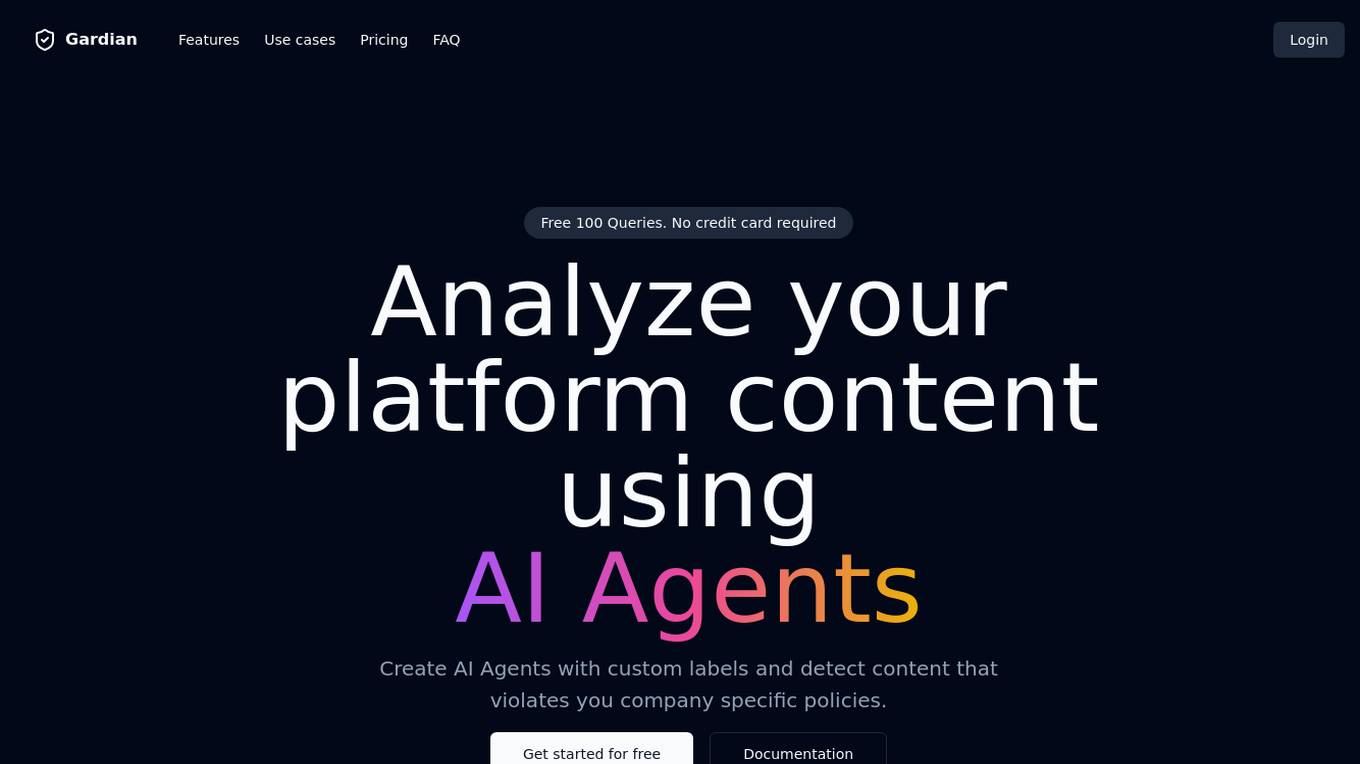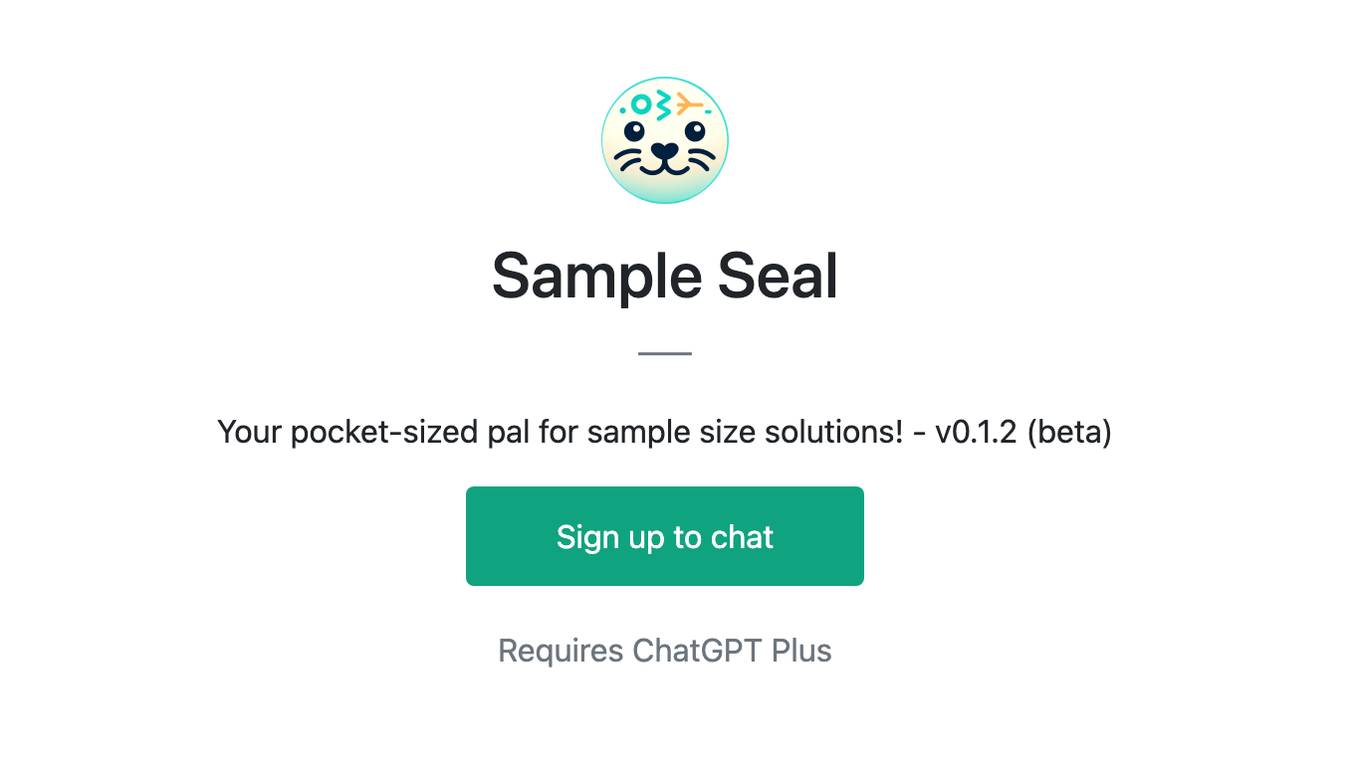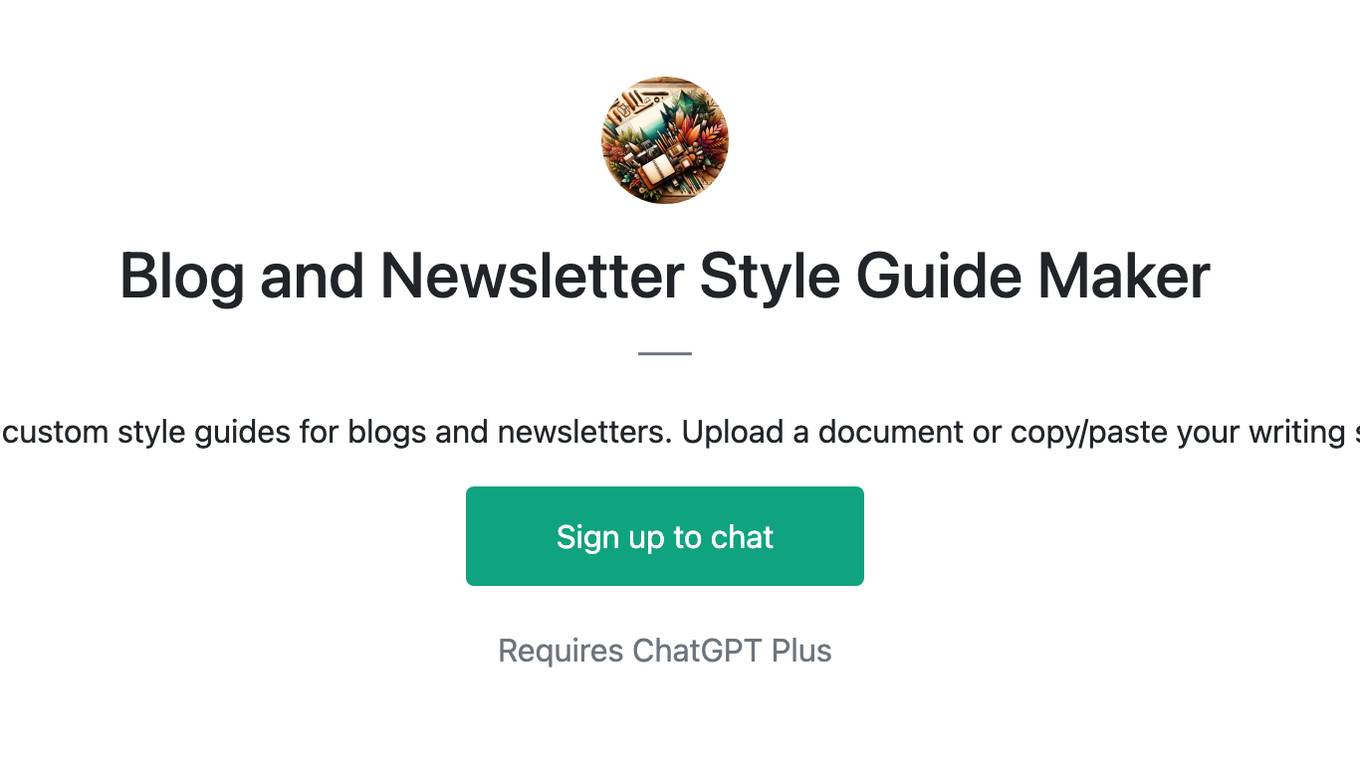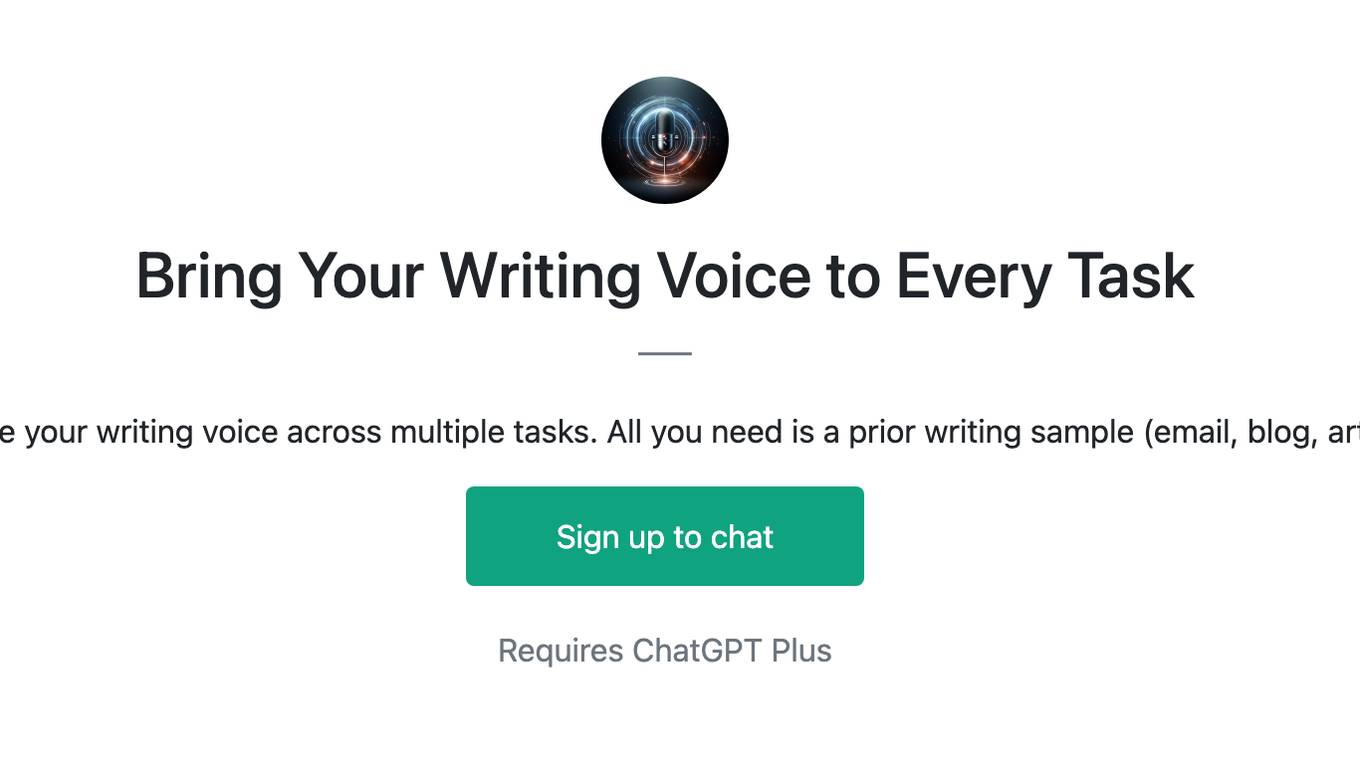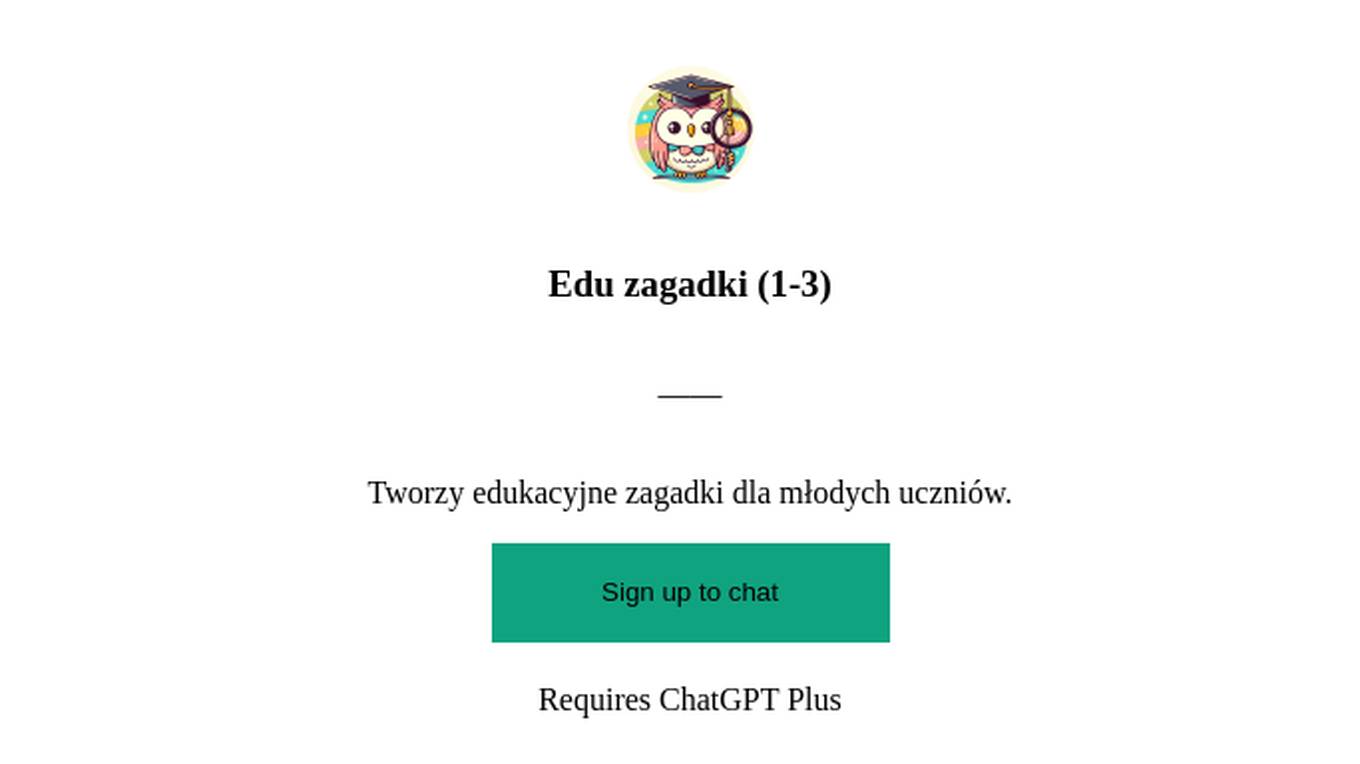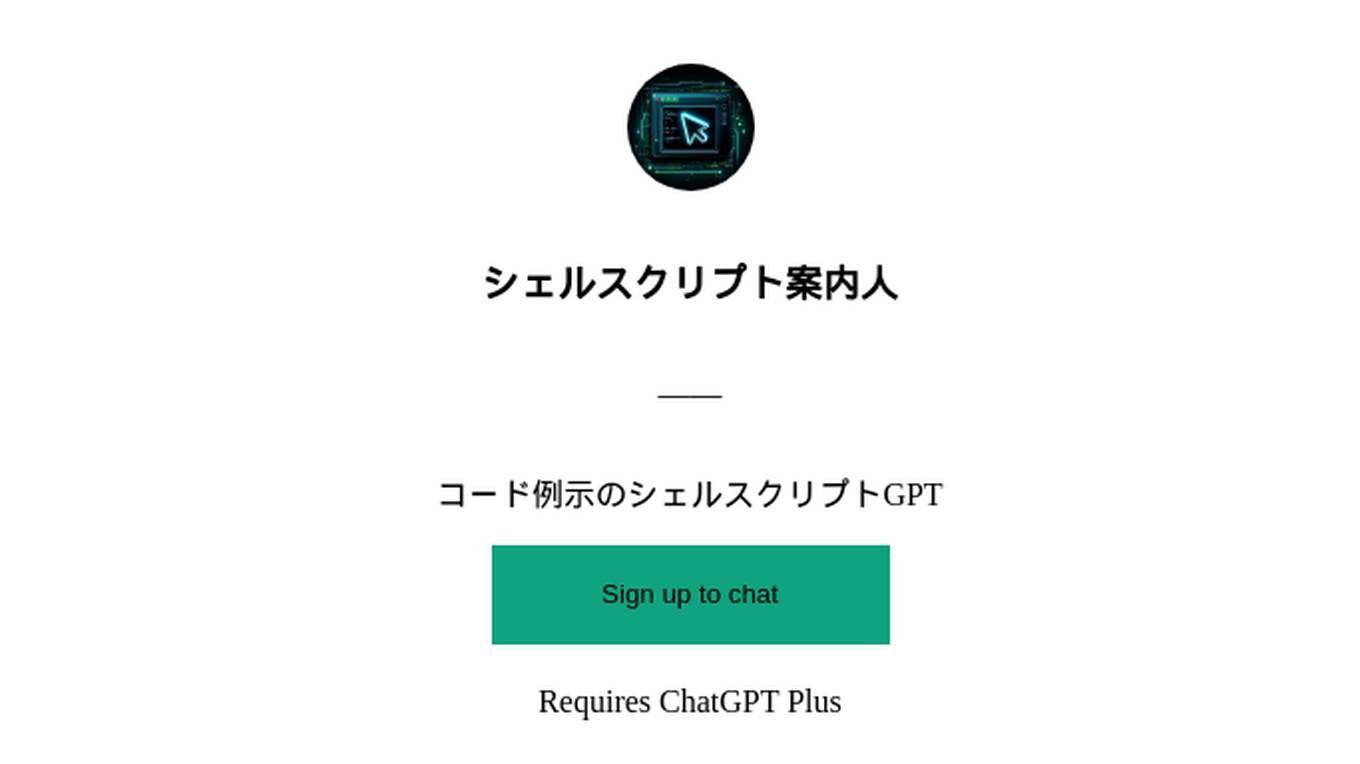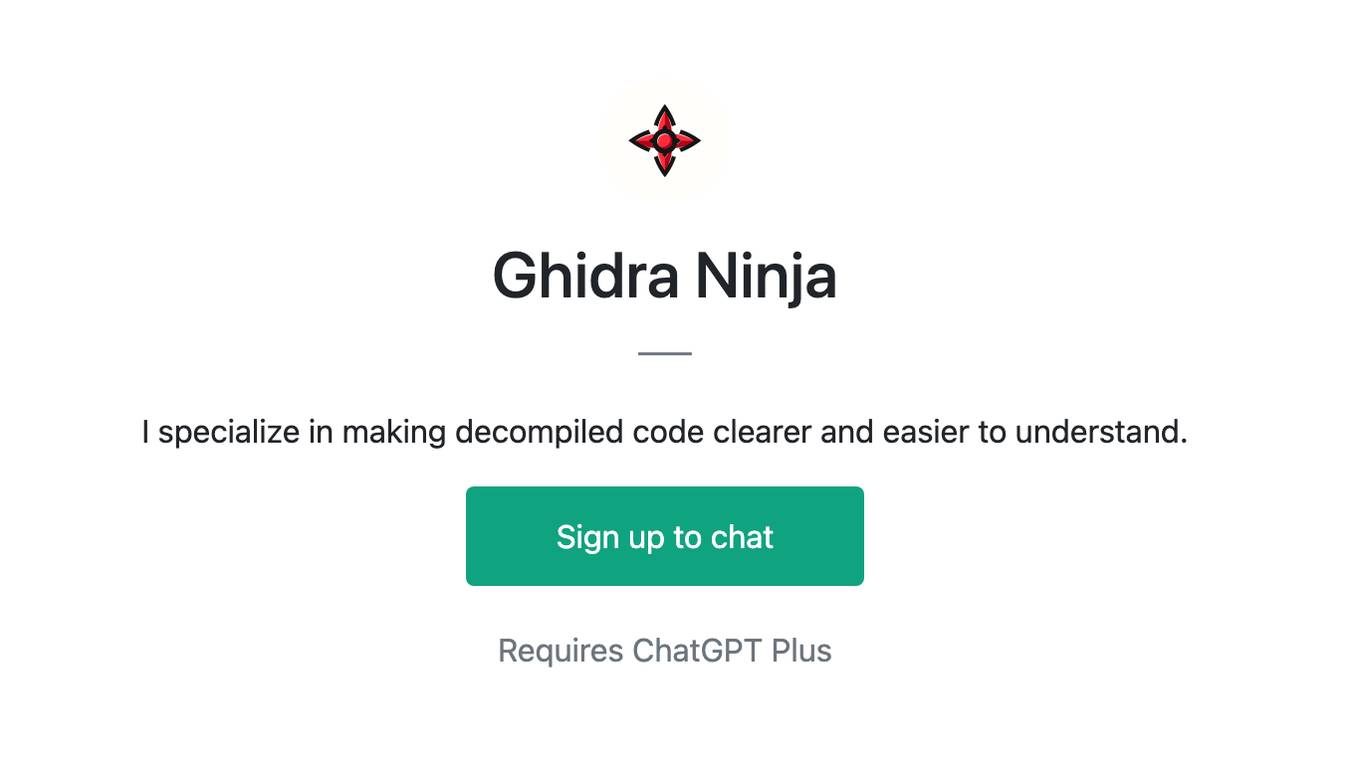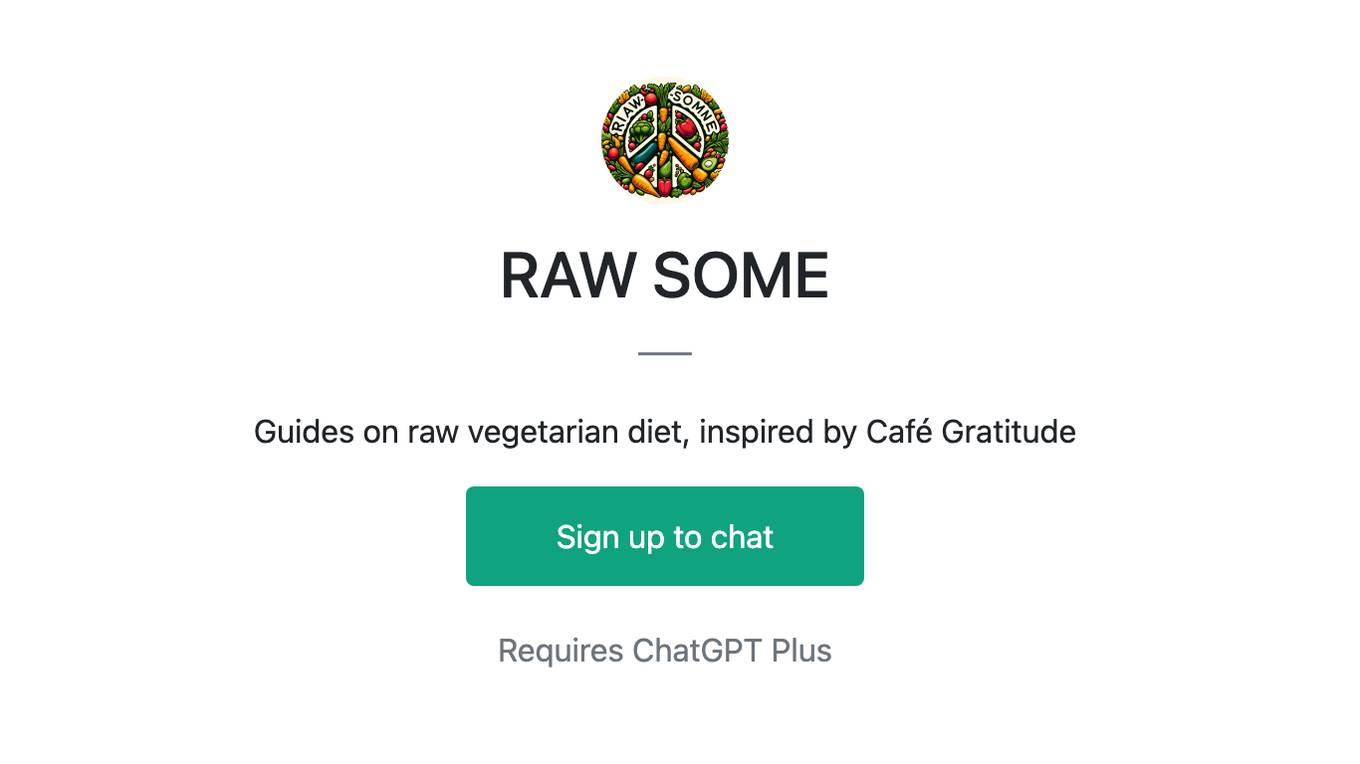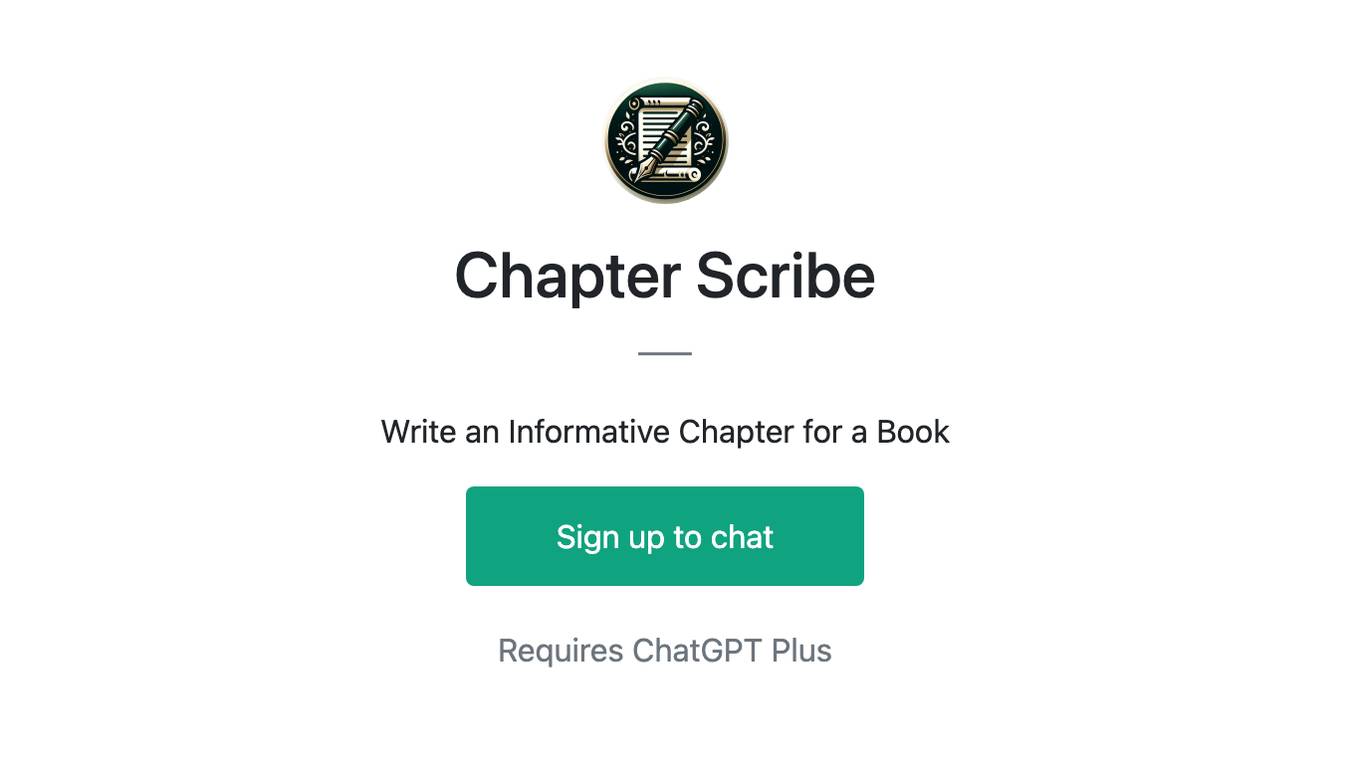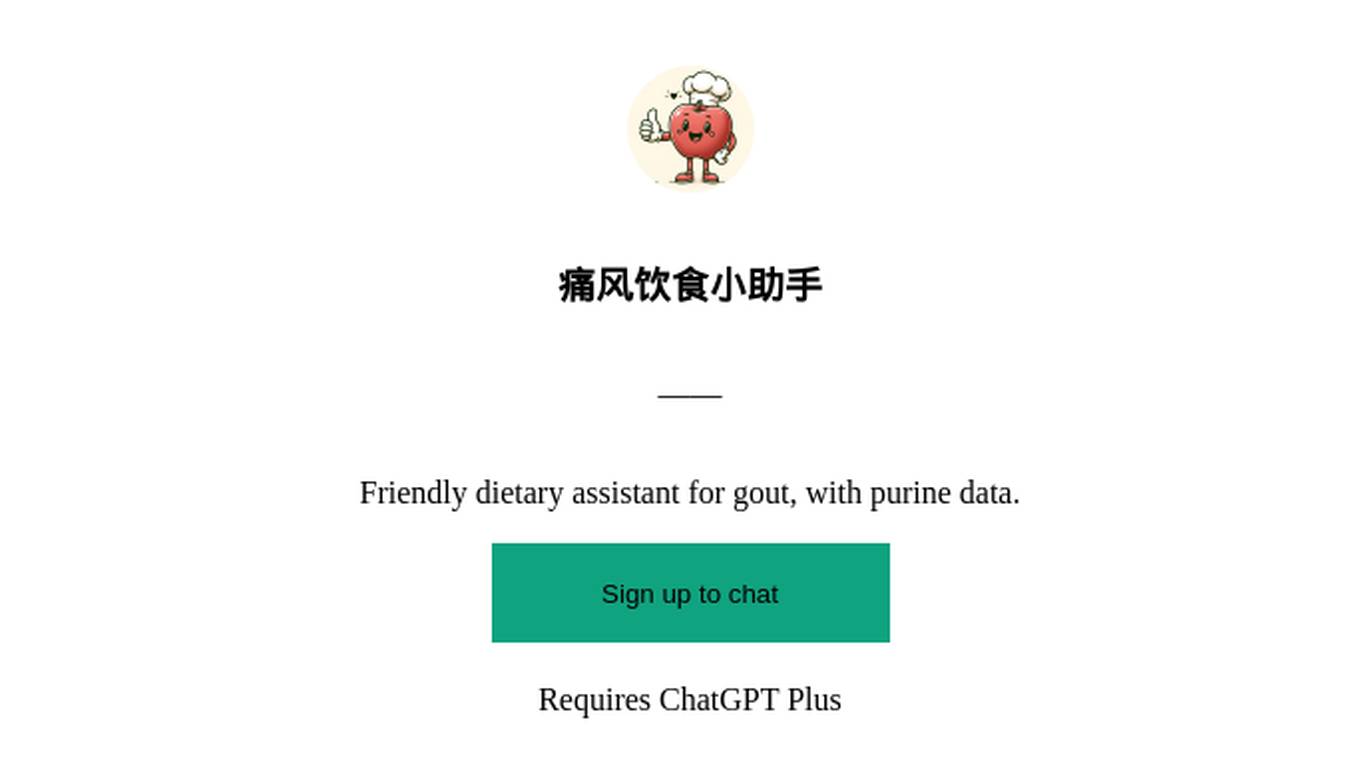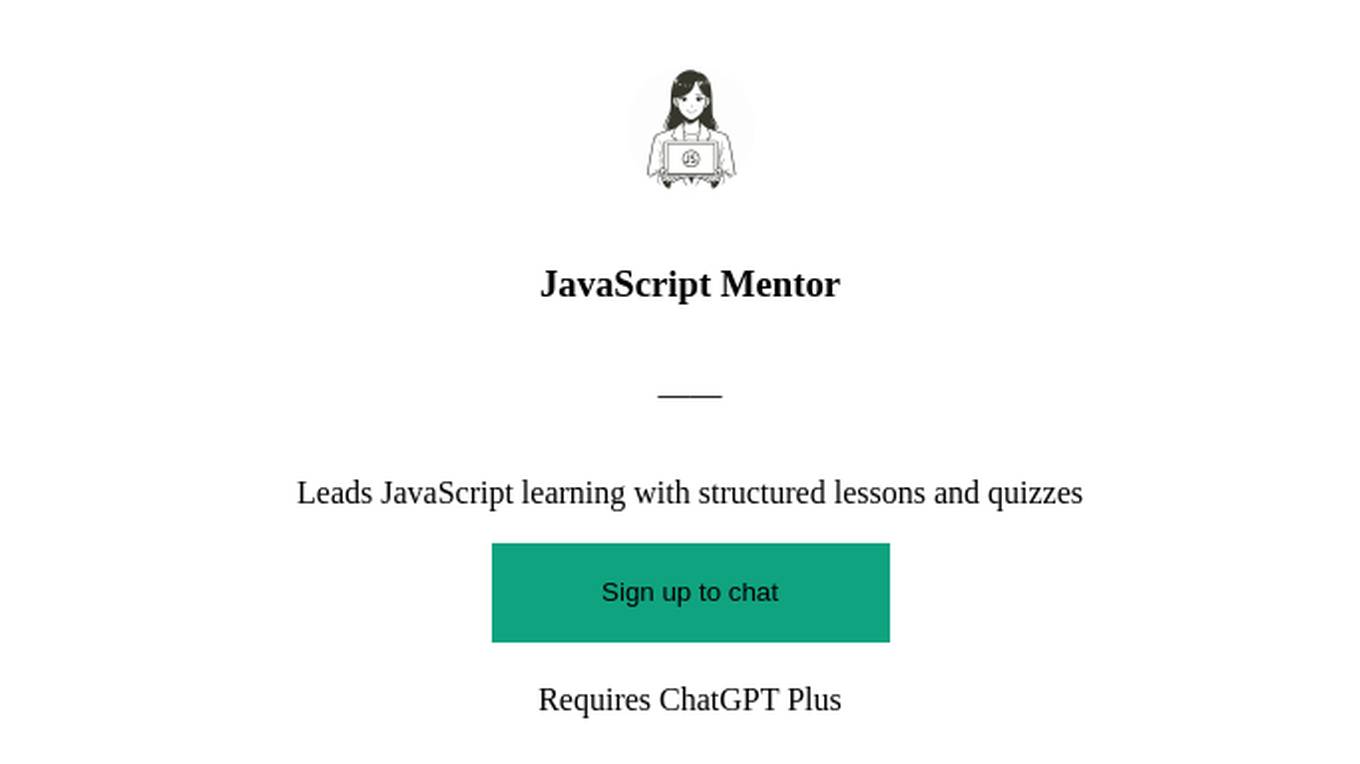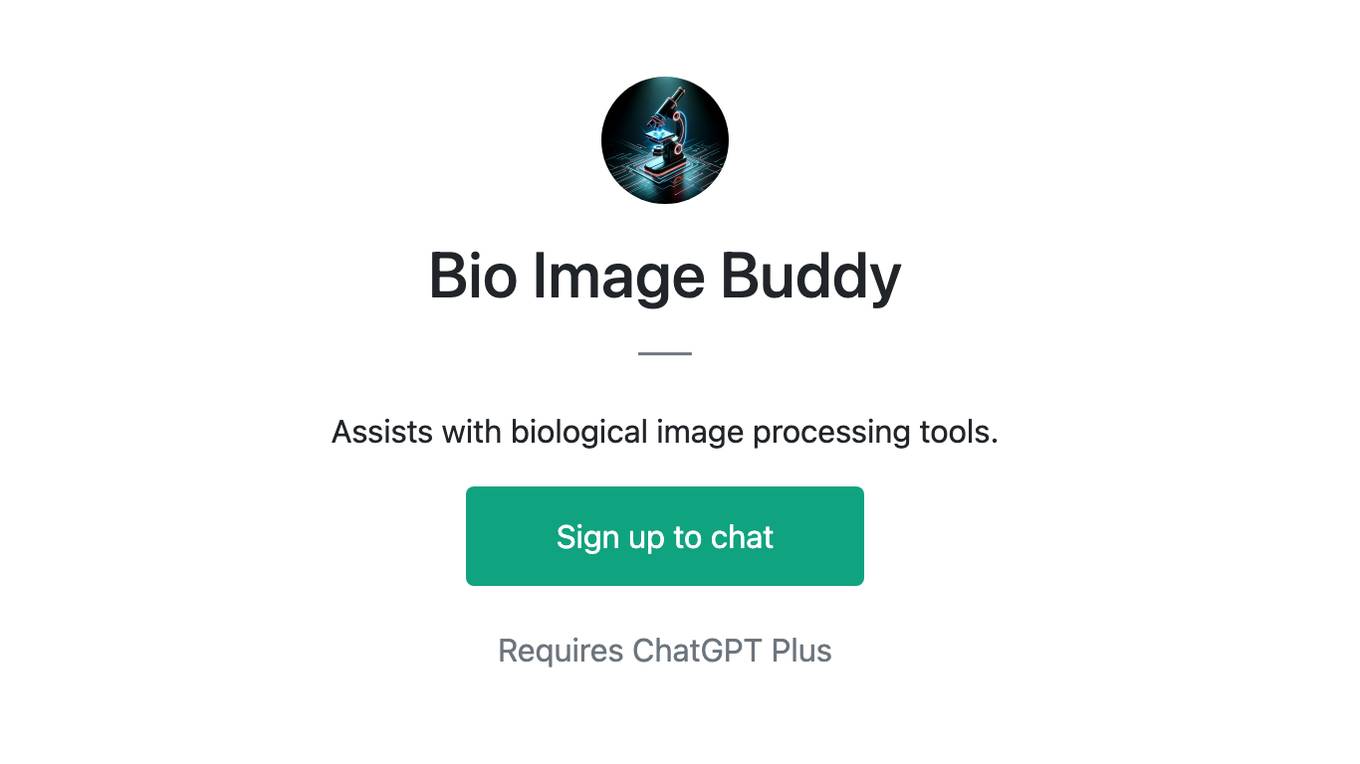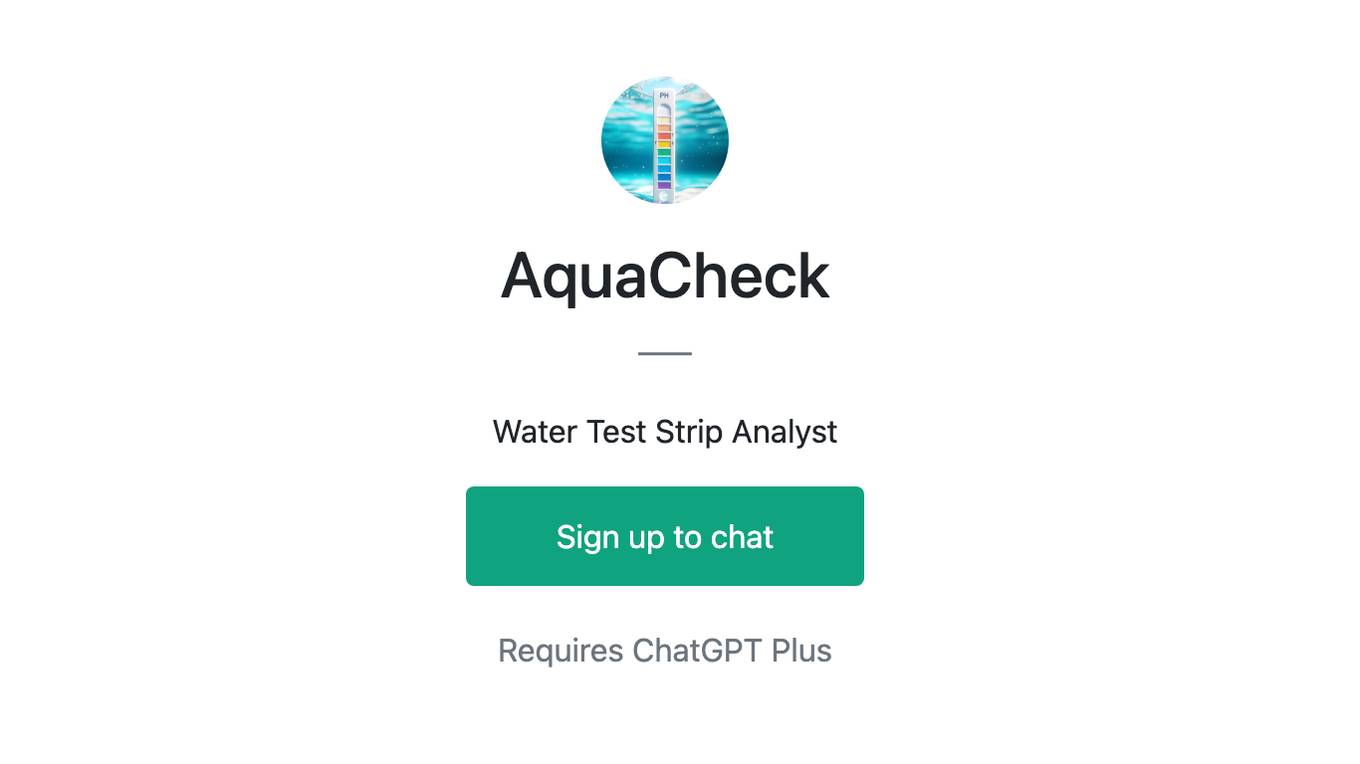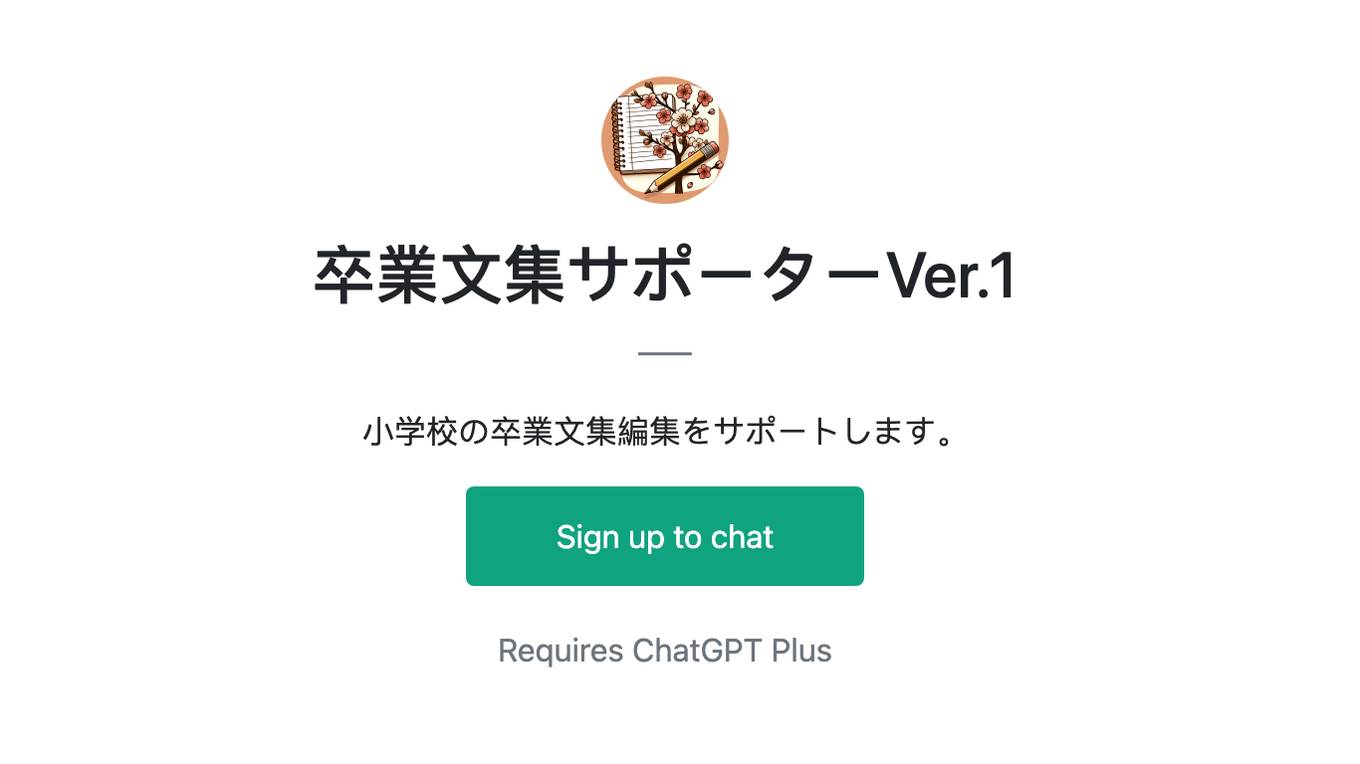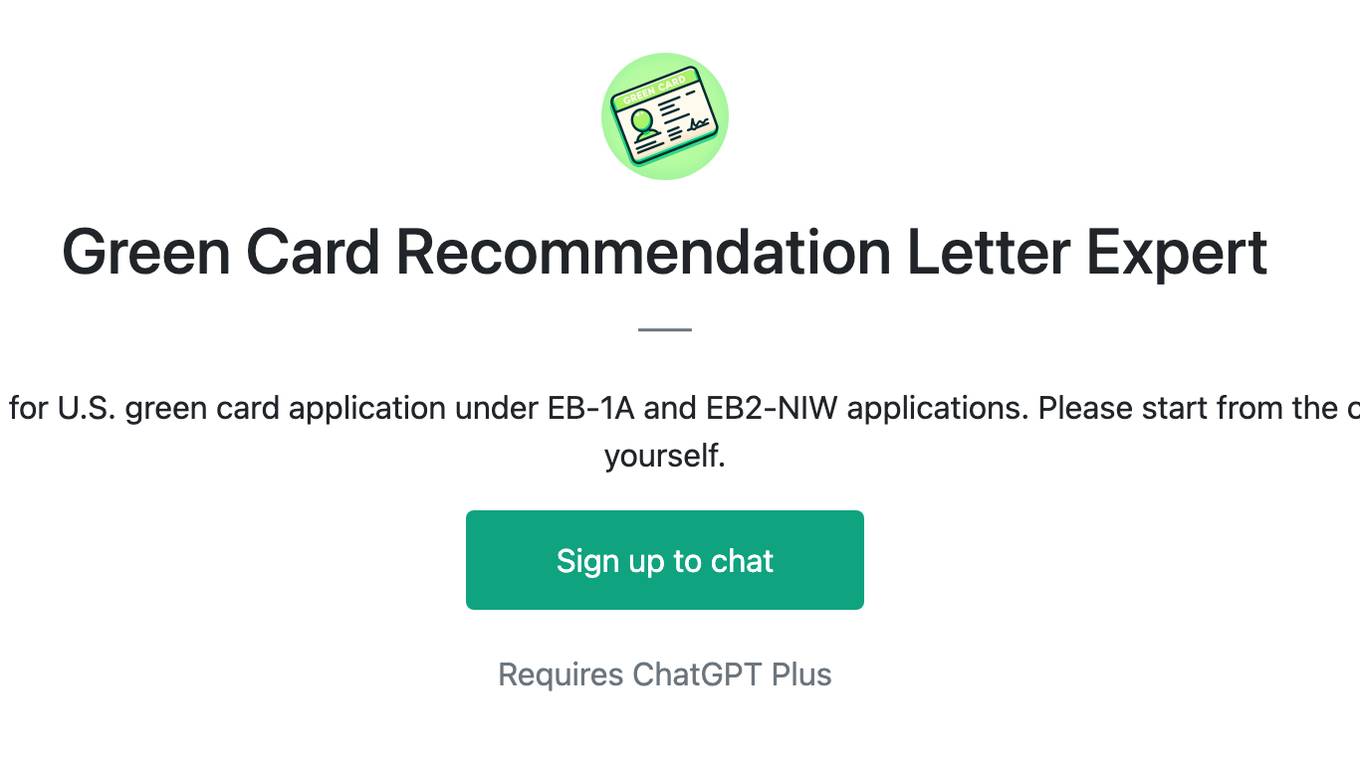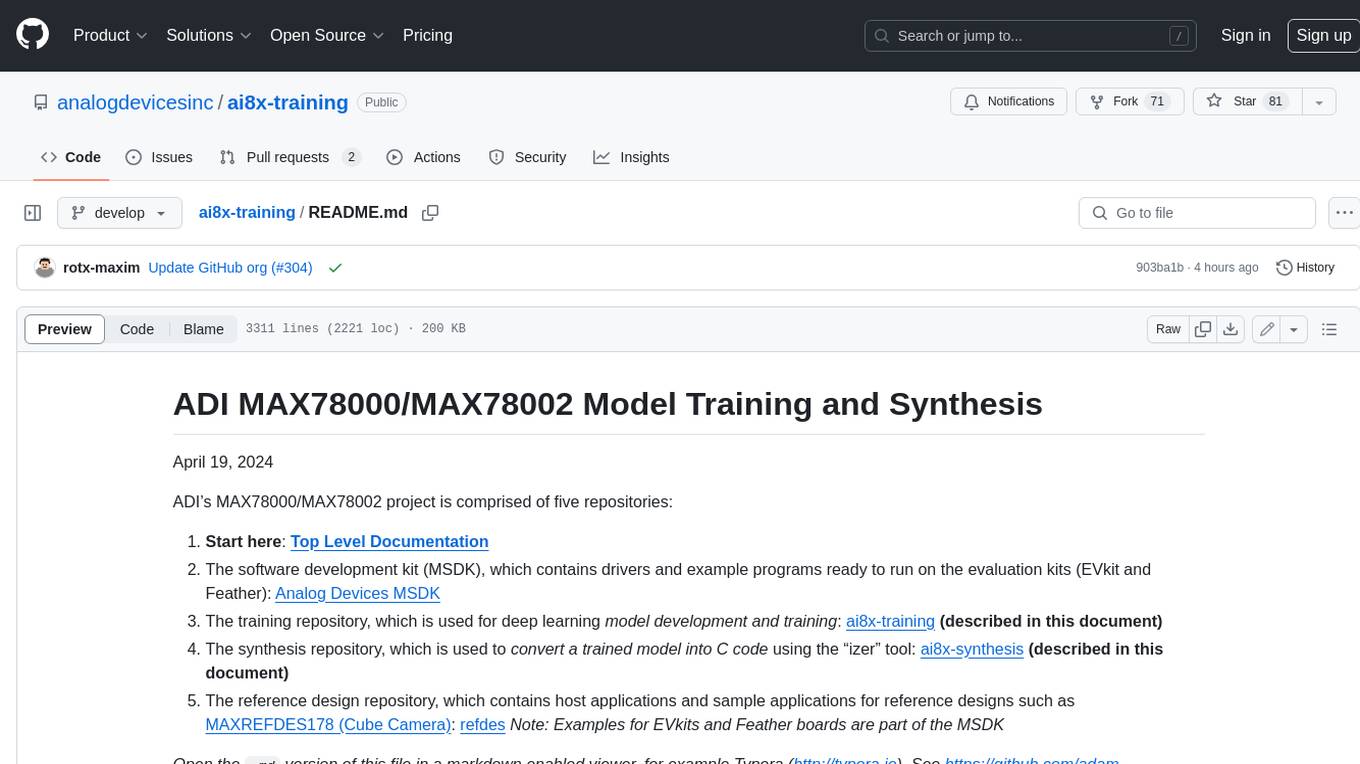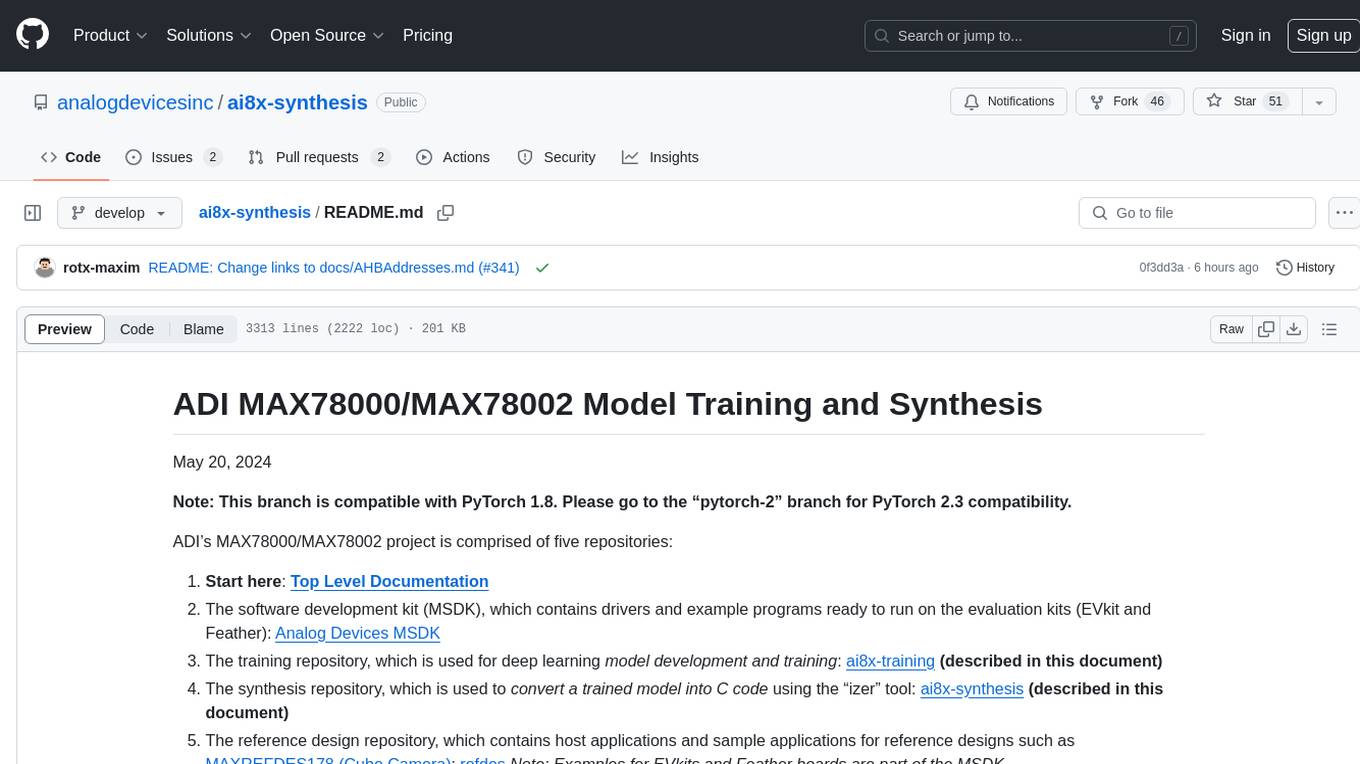AI tools for sample fit
Related Tools:
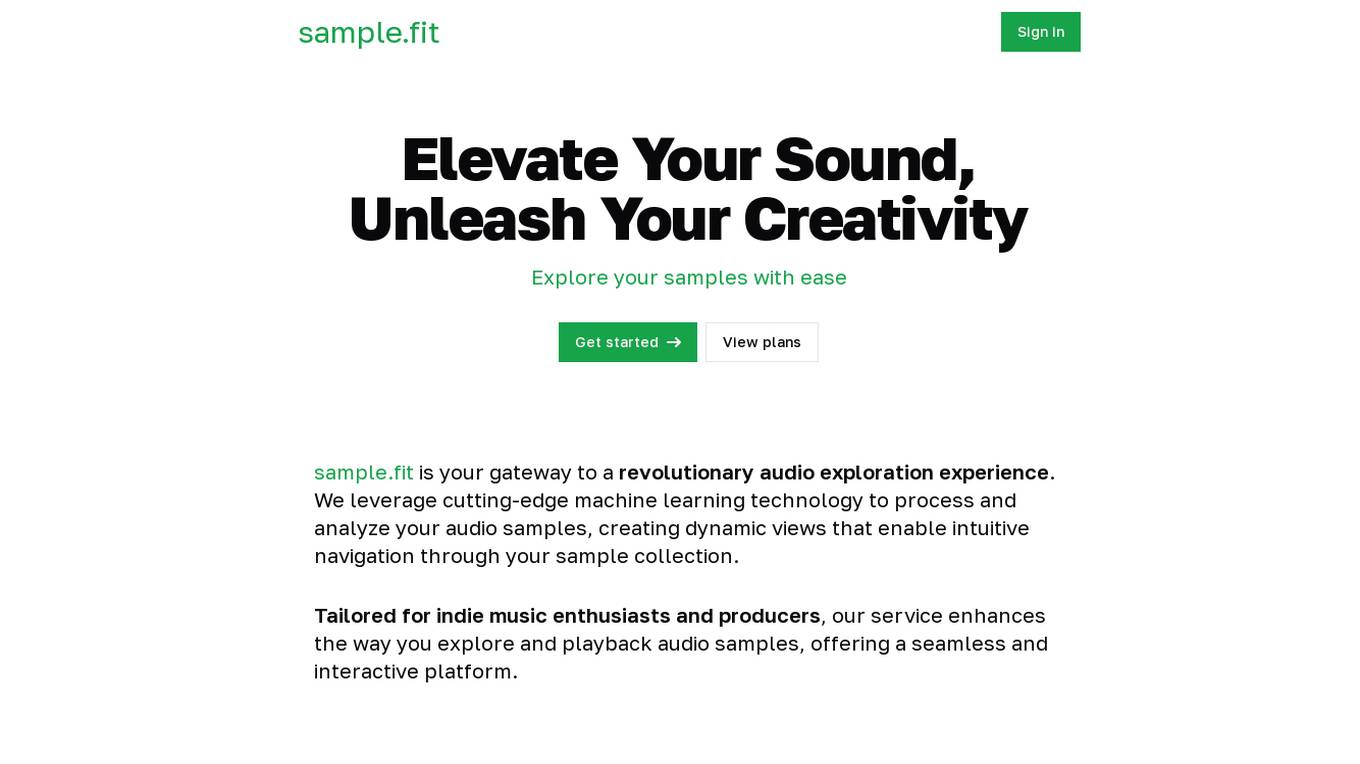
sample.fit
sample.fit is an AI tool designed to revolutionize the audio exploration experience for indie music enthusiasts and producers. By leveraging cutting-edge machine learning technology, the platform processes and analyzes audio samples to create dynamic views for intuitive navigation through sample collections. The service offers a seamless and interactive platform for exploring and playback audio samples, enhancing creativity and sound production.
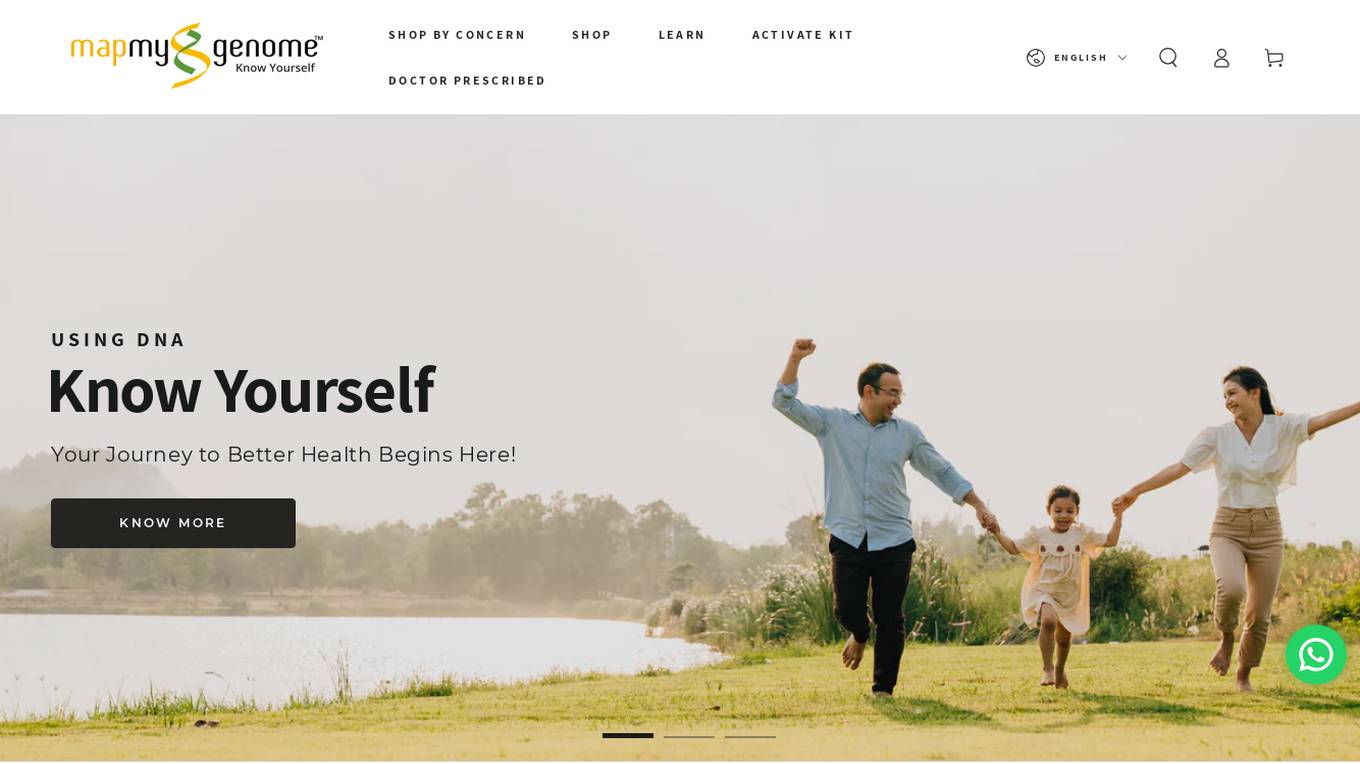
Mapmygenome
Mapmygenome is an AI-powered platform that offers DNA testing products for health, fitness, and beauty. It provides personalized insights based on genetic analysis to help individuals make informed decisions about their health, wellness, and lifestyle choices. With over 23 years of genomics experience and the latest sequencing technology, Mapmygenome aims to empower users to take proactive steps towards improving their overall well-being.
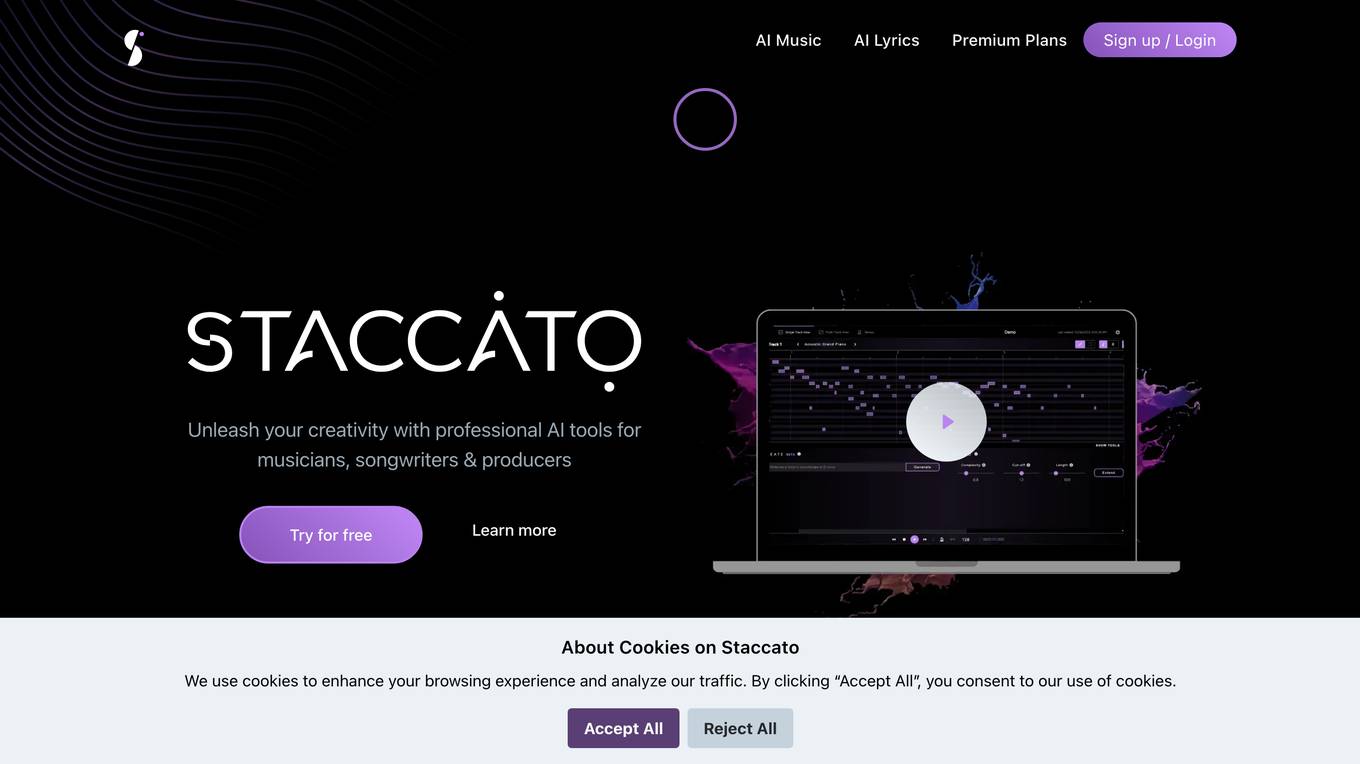
Staccato
Staccato is an AI-powered music creation and songwriting tool that helps musicians, songwriters, and producers overcome writer's block, generate unique melodies and lyrics, and learn music theory. With its intuitive interface and powerful AI algorithms, Staccato provides a range of features to enhance the creative process, including AI Instrument™ for generating MIDI music, AI Lyrics for creating song lyrics, and educational tools for understanding music theory and songwriting techniques.
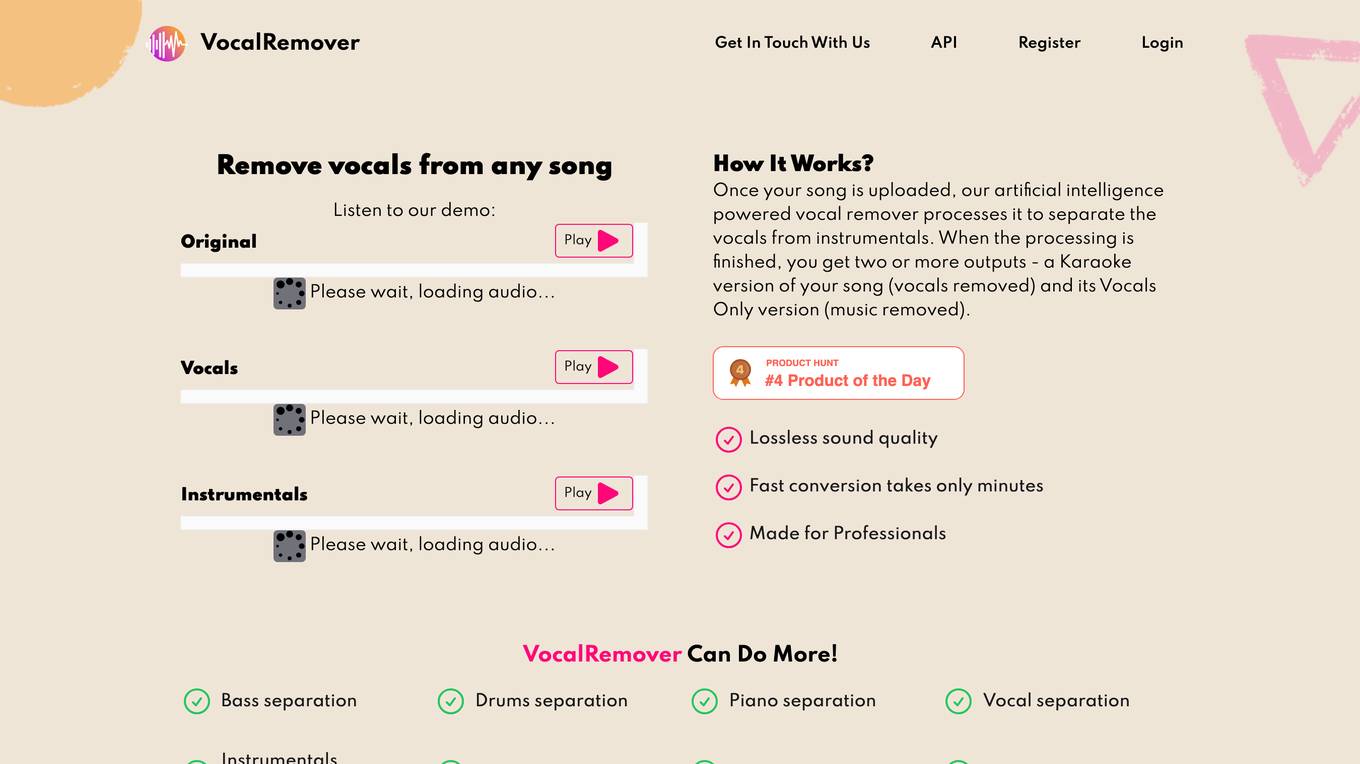
VocalRemover
VocalRemover is an online tool that uses artificial intelligence to remove vocals from any music track. It is easy to use, simply upload your song and the AI will process it to separate the vocals from the instrumentals. You can then download the resulting karaoke version or vocals-only version of your song. VocalRemover is a great tool for musicians, singers, and anyone who wants to create their own karaoke tracks.
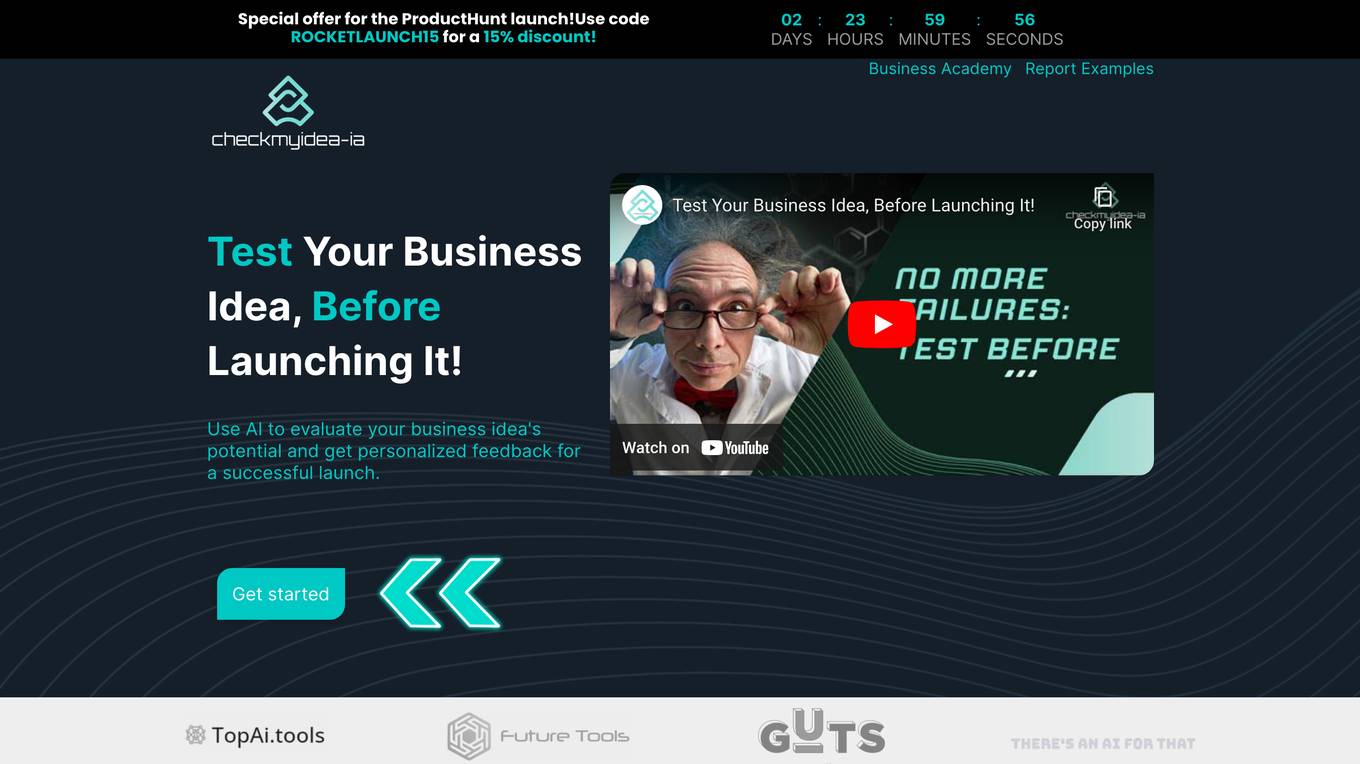
Checkmyidea-IA
Checkmyidea-IA is an AI-powered tool that helps entrepreneurs and businesses evaluate their business ideas before launching them. It uses a variety of factors, such as customer interest, uniqueness, initial product development, and launch strategy, to provide users with a comprehensive review of their idea's potential for success. Checkmyidea-IA can help users save time, increase their chances of success, reduce risk, and improve their decision-making.
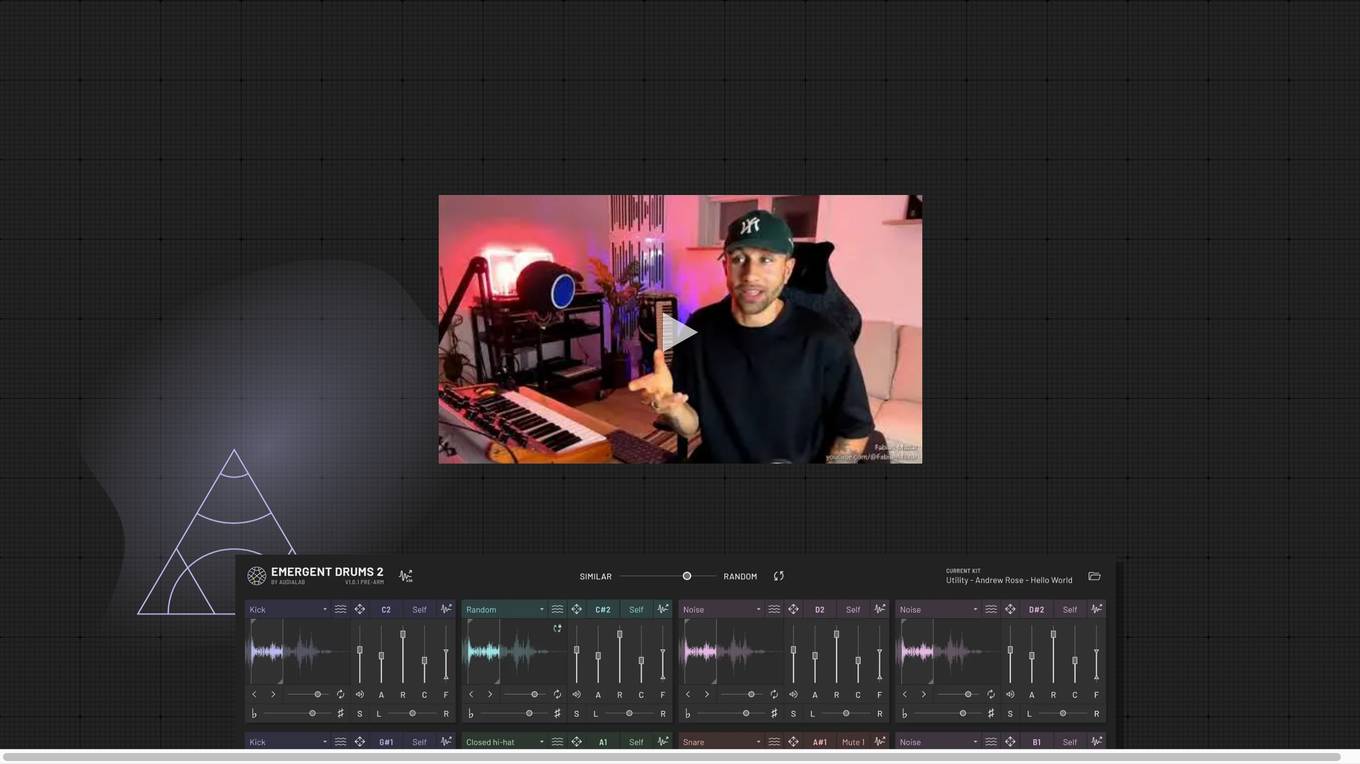
Emergent Drums
Emergent Drums by Audialab is an AI-powered tool that allows users to generate an infinite number of royalty-free drum samples. With its advanced algorithms, Emergent Drums can create a wide range of drum sounds, from classic to modern, and everything in between. The tool is easy to use, and users can quickly generate drum samples that fit their specific needs. Emergent Drums is a valuable tool for musicians, producers, and anyone else who needs high-quality drum samples.
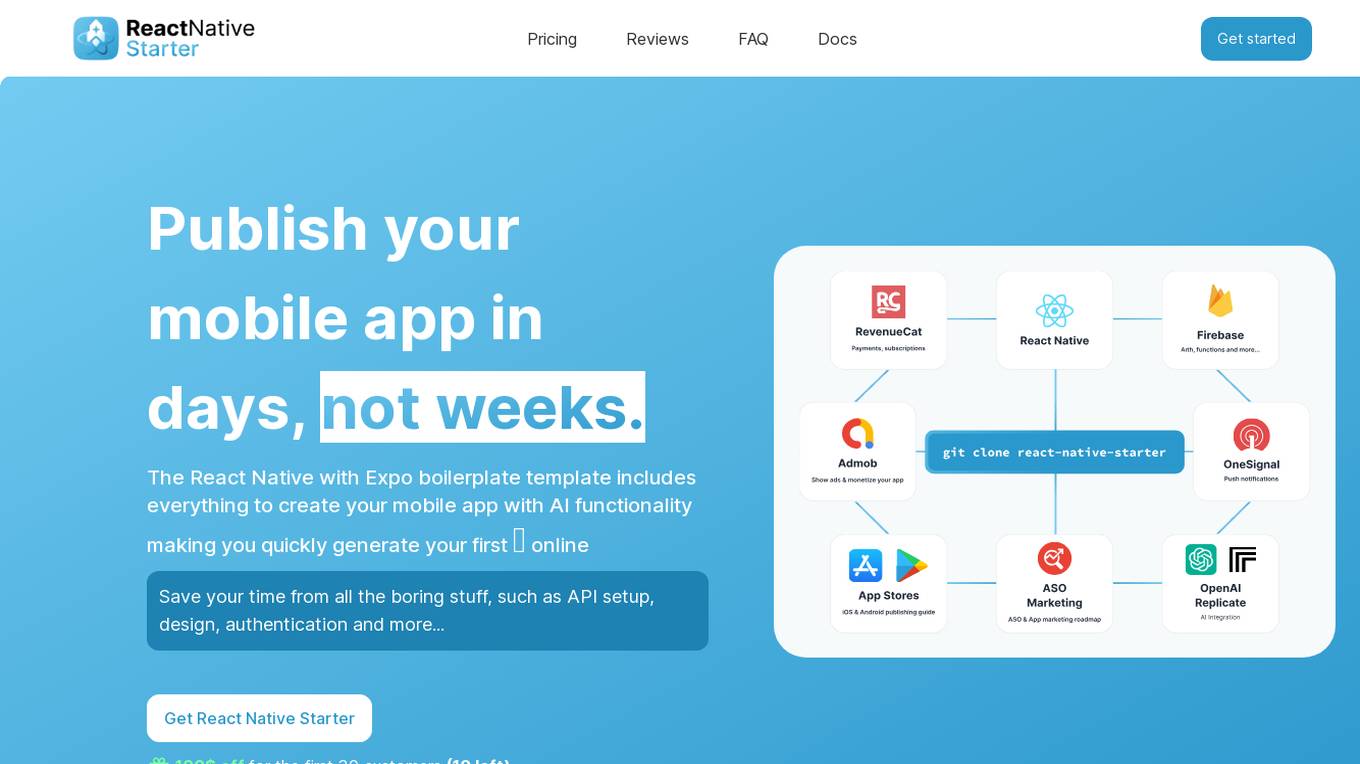
React Native Starter AI
React Native Starter AI is an all-in-one development kit designed to help users quickly launch their mobile apps with AI functionality. The boilerplate template includes integrations such as AI tools, Firebase functions, analytics, authentication, in-app purchases, and more. It aims to save developers time by providing pre-built components and screens for building AI mobile applications. With React Native Starter AI, users can easily customize and publish their apps on mobile app stores, catering to both beginner and experienced developers.
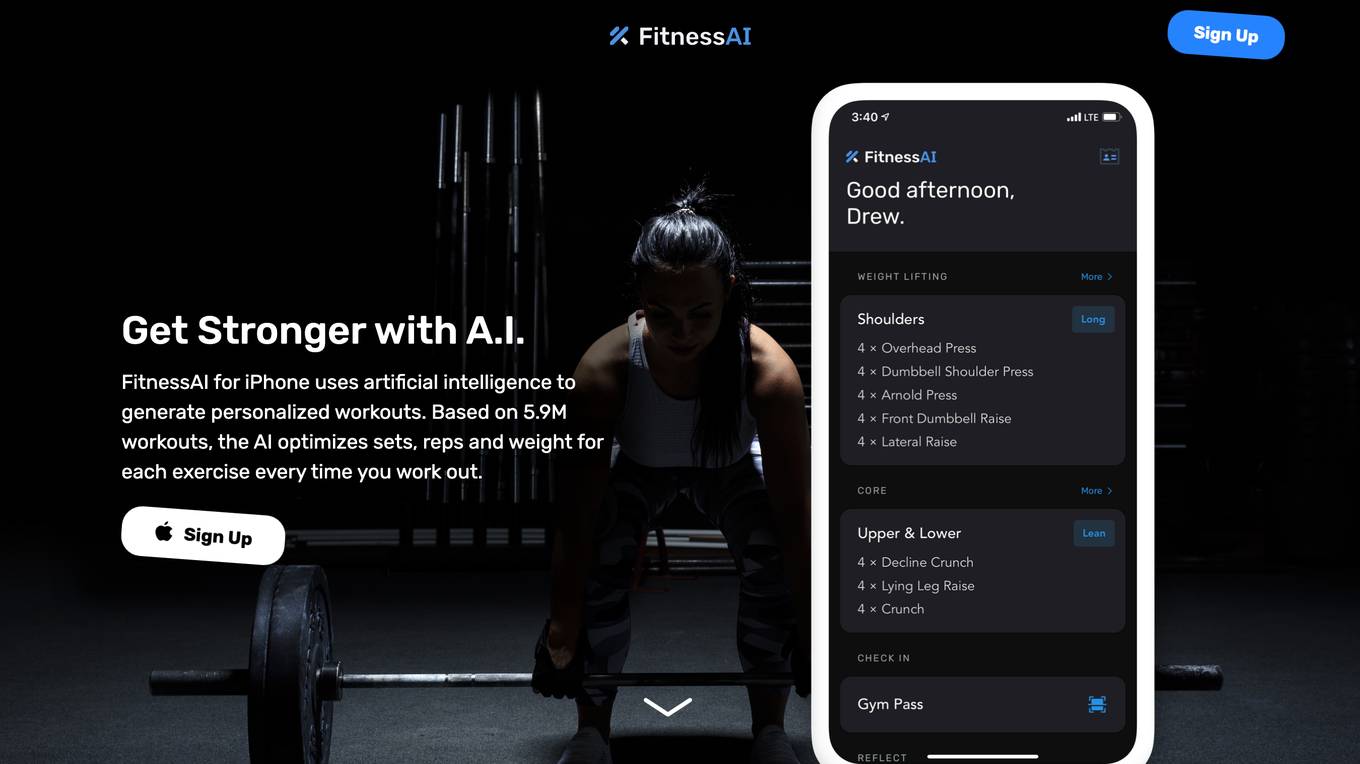
FitnessAI
FitnessAI is an AI-powered fitness app that provides personalized workouts based on 5.9 million workouts. It uses artificial intelligence to optimize sets, reps, and weight for each exercise, making it easy for users to get stronger and faster. FitnessAI is simple to use, with a user-friendly interface and clear workout recommendations. It also tracks progress over time, so users can see how the algorithm is helping them improve. FitnessAI is a great option for anyone looking to get fit or improve their fitness routine.
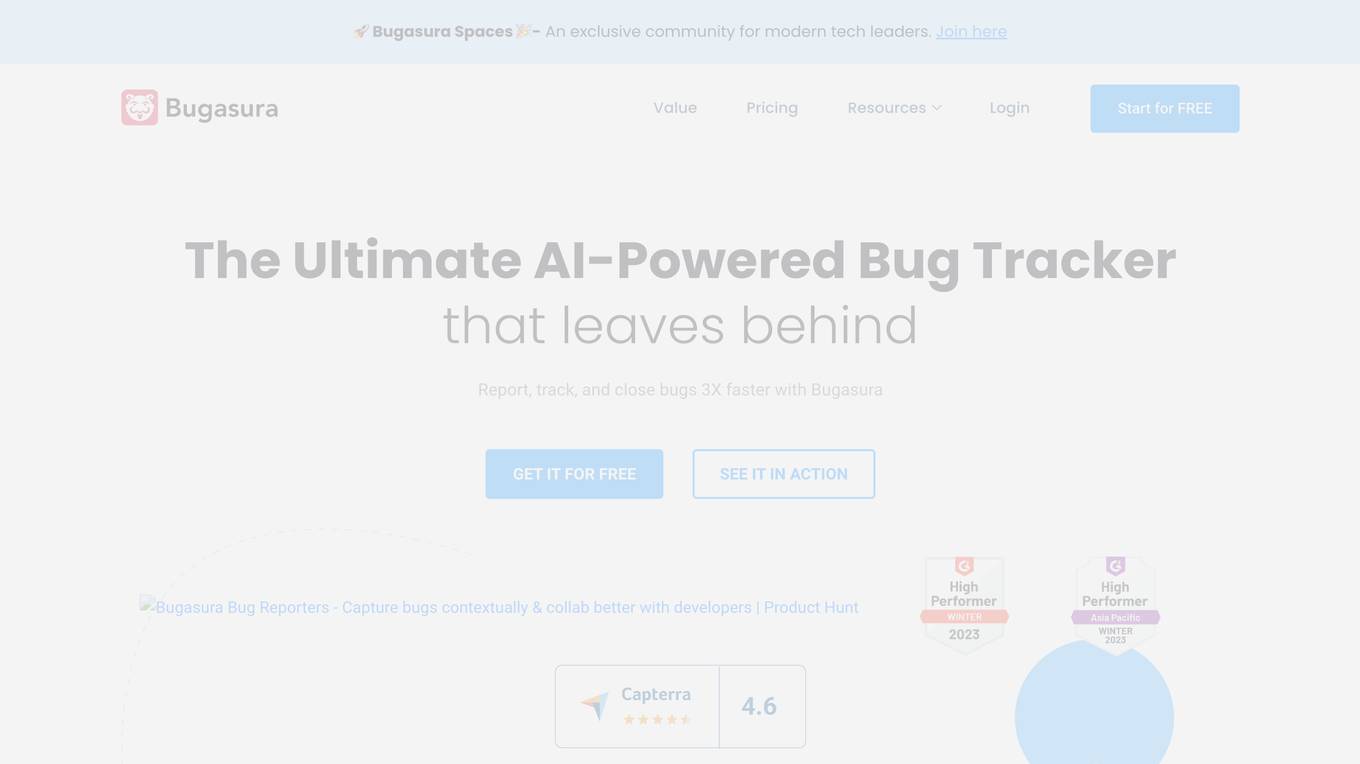
Bugasura
Bugasura is an AI-enabled bug management software designed for modern technology teams to track, report, and manage issues efficiently. It offers powerful tools such as test management, issue tracker, bug reporters, and performance monitoring. With AI capabilities, Bugasura streamlines the bug tracking process, empowers teams to tackle complex challenges, and provides contextual issue reporting. The platform is known for its simplicity, speed, and effectiveness in managing requirements, tests, and test runs. Bugasura Spaces, an exclusive community for tech leaders, offers valuable resources, blog posts, release notes, and product roadmap insights. Bugasura prioritizes privacy and security with end-to-end encryption and secure authentication protocols.

OutfitIdeas
OutfitIdeas is an AI-powered styling tool that offers personalized haircut and outfit recommendations based on individual preferences. Users can upload a photo and answer a simple questionnaire to receive a free lookbook with haircut and outfit designs, face-fit visualizations, expert tips, and a shopping guide. The platform aims to serve as a personal image consultant, helping users save time, effort, and money while achieving their desired style.
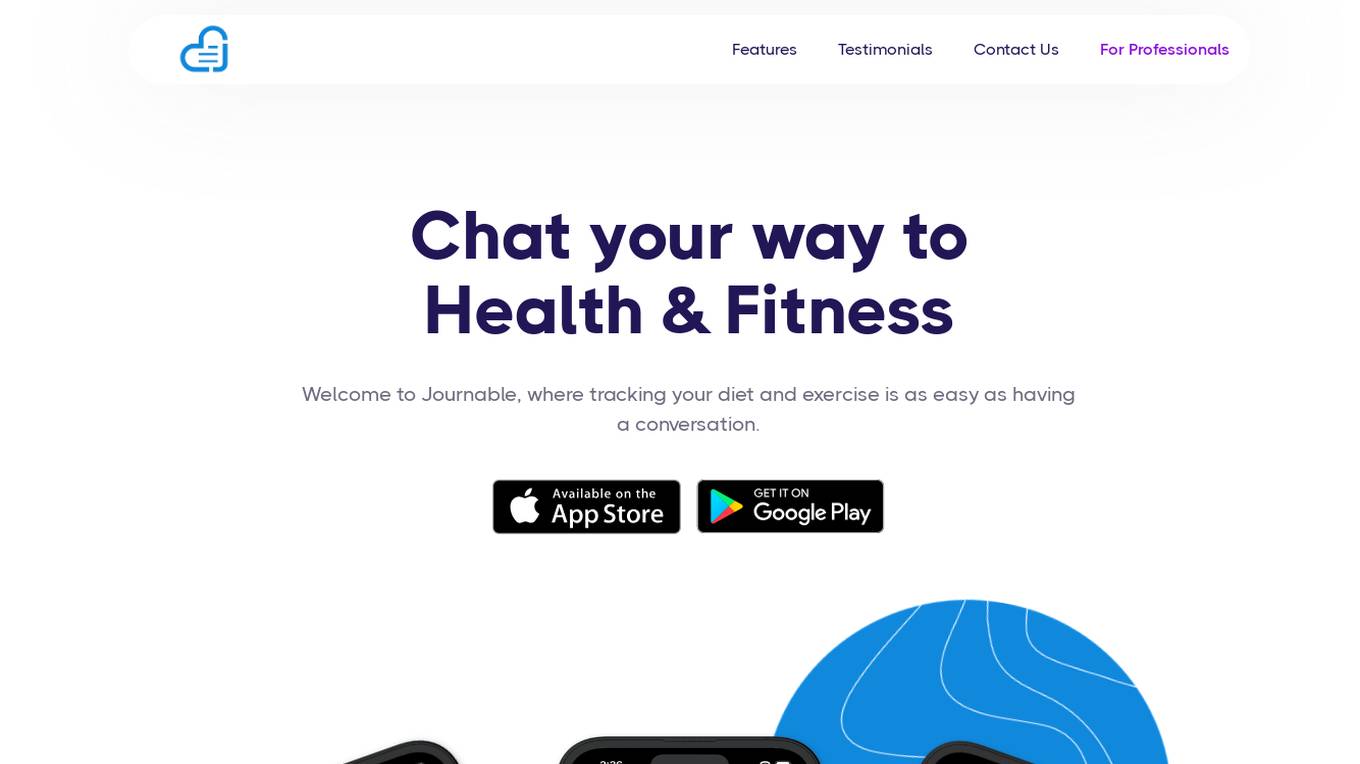
Journable
Journable is a food and fitness journal that uses AI to make tracking your diet and exercise as easy as having a conversation. With Journable, you can set your own health goals, track your progress, and get instant nutritional and exercise insights based on your conversations. Journable's AI understands a wide variety of foods, from homemade meals to restaurant dishes, and can even analyze your workouts to give you a full picture of your calorie intake and burn. Whether you're looking to lose weight, gain muscle, or simply maintain a healthy lifestyle, Journable provides the tools and insights you need to succeed.
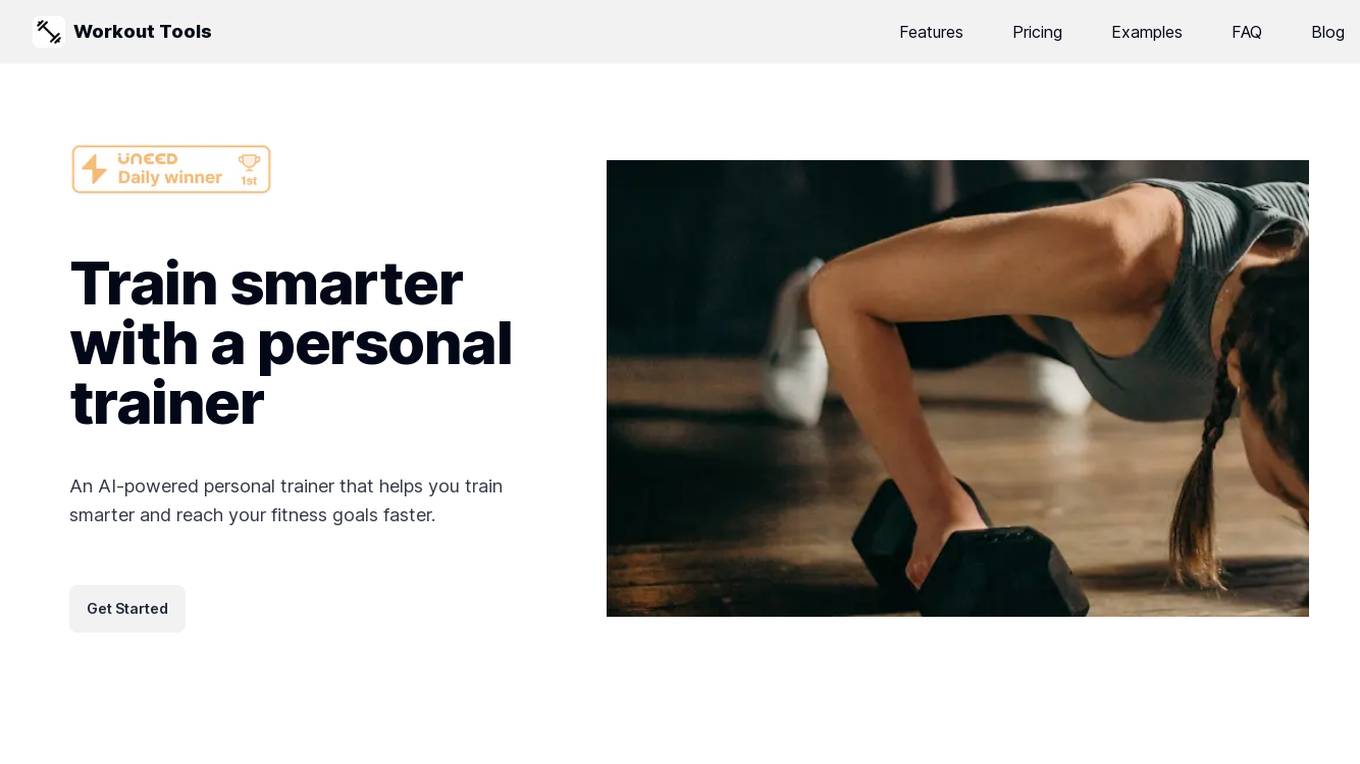
Workout Tools
Workout Tools is an AI-powered personal trainer that helps you train smarter and reach your fitness goals faster. It takes into account different parameters, such as your physics, the type of workout you're interested in, your available equipment, and comes up with a suggested workout. Don't like the workout? Just generate another one. It's that simple.

Gumroad
Gumroad is an online platform that enables creators to sell products directly to consumers. It offers a wide range of categories including Drawing & Painting, Design, Music, Software Development, Education, Gaming, Photography, Writing, Fitness, and more. Creators can set up their storefronts, list products, and handle transactions all in one place.
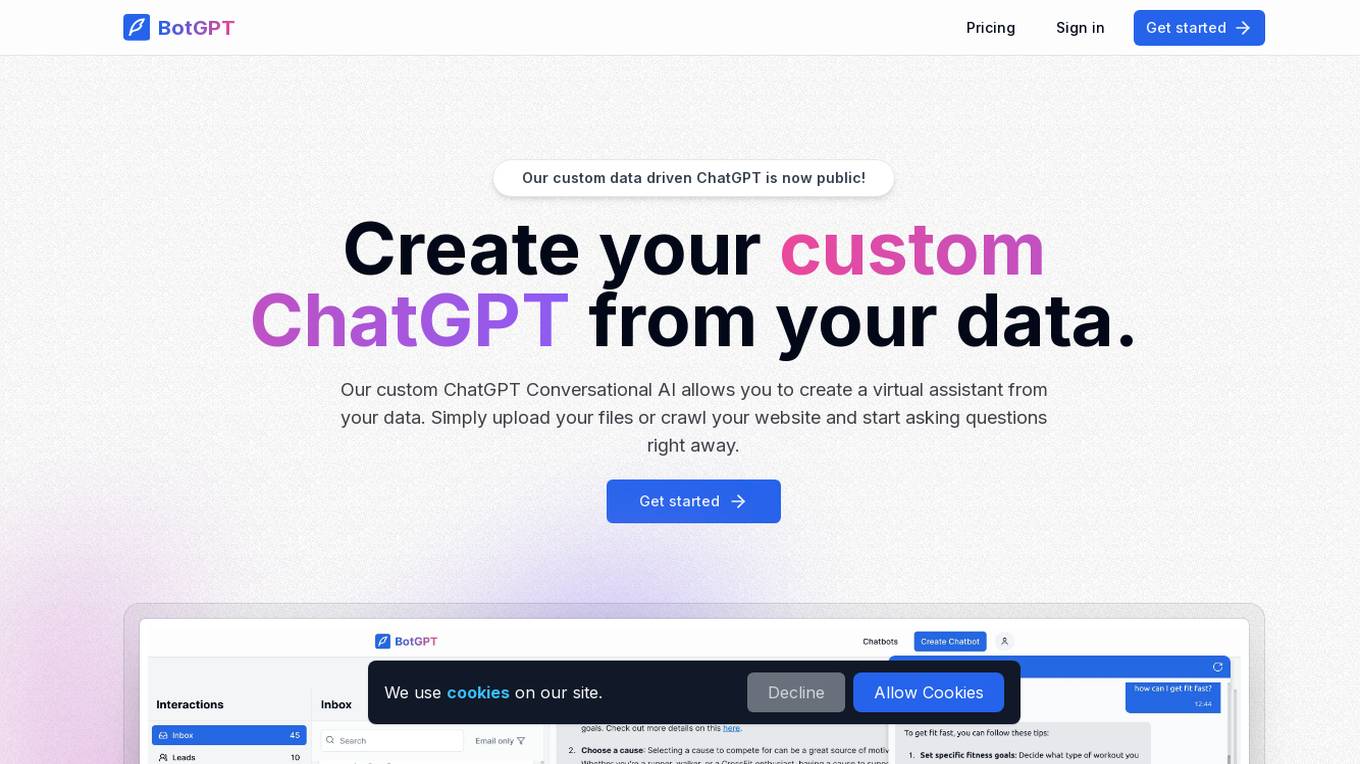
BotGPT
BotGPT is a 24/7 custom AI chatbot assistant for websites. It offers a data-driven ChatGPT that allows users to create virtual assistants from their own data. Users can easily upload files or crawl their website to start asking questions and deploy a custom chatbot on their website within minutes. The platform provides a simple and efficient way to enhance customer engagement through AI-powered chatbots.
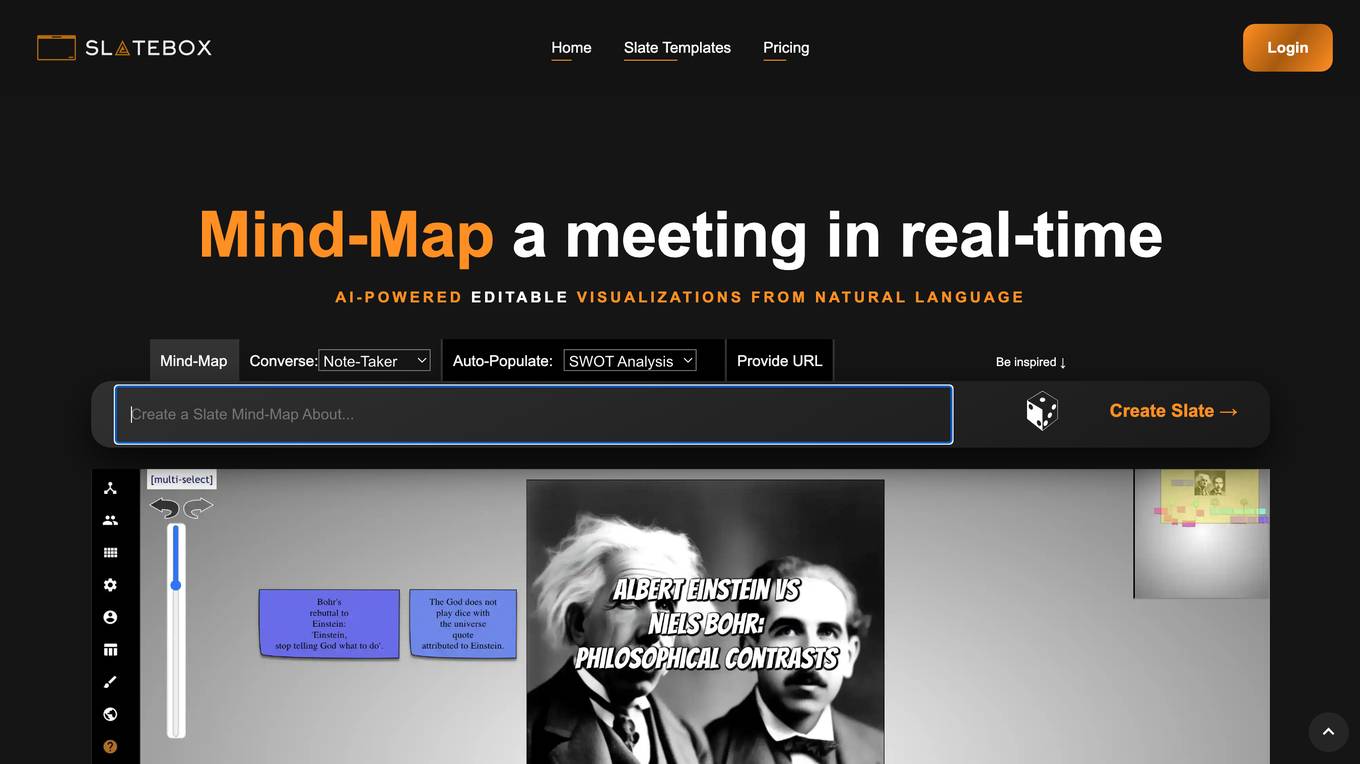
Slatebox
Slatebox is an AI-powered visualization platform that allows users to create editable visualizations from natural language. With Slatebox, users can create mind maps, flowcharts, diagrams, and more, simply by providing a text prompt or URL. Slatebox also offers a variety of templates and features to help users get started, including real-time collaboration, auto-population, and API integration.
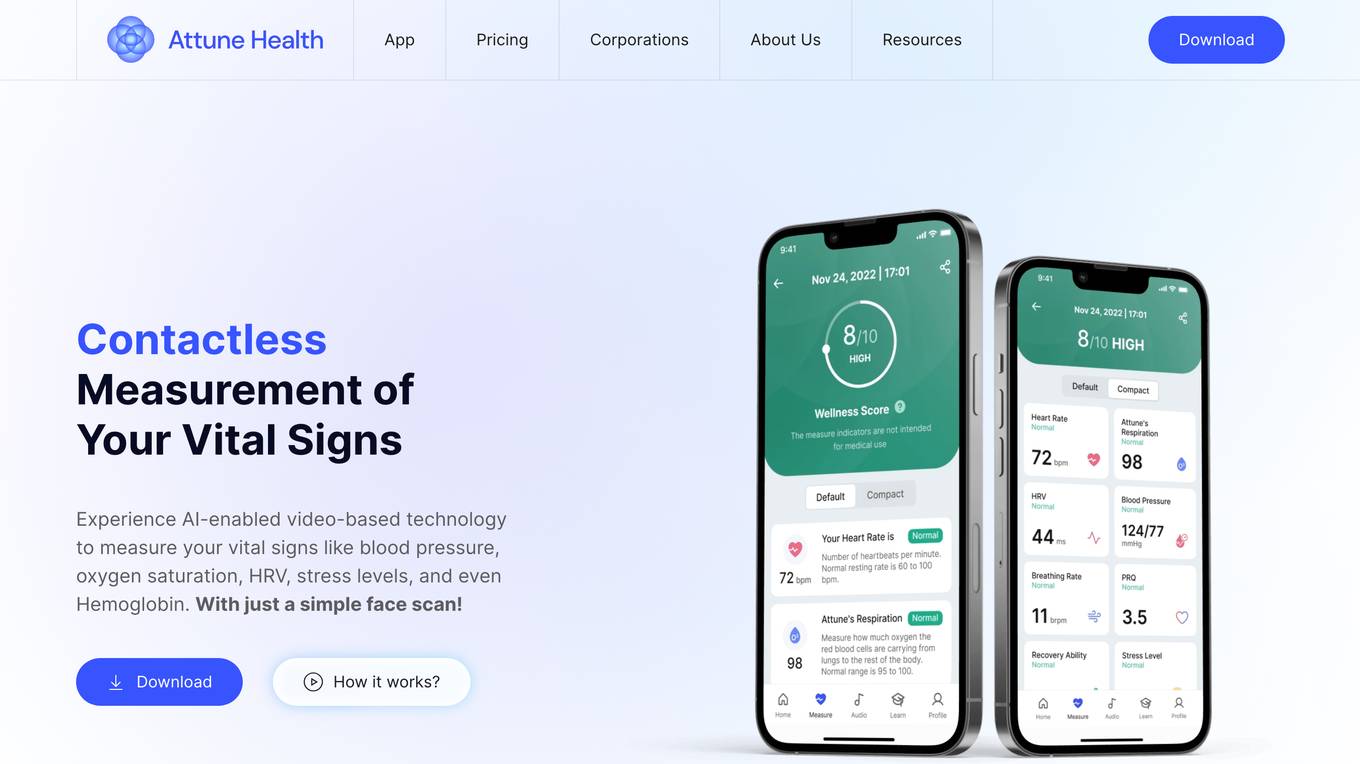
Attune Health Mobile App
Attune Health Mobile App is an AI-enabled application that offers contactless measurement of vital signs using video-based technology. Users can easily track and monitor their blood pressure, oxygen saturation, HRV, stress levels, and Hemoglobin through a simple face scan. The app provides accurate real-time measurements, empowering individuals to take control of their health and wellness. It also offers gender-specific results, privacy protection, and family value by allowing biomarker measurements for the whole family. Attune Health is a comprehensive solution for individuals and corporations seeking to improve health outcomes and productivity.
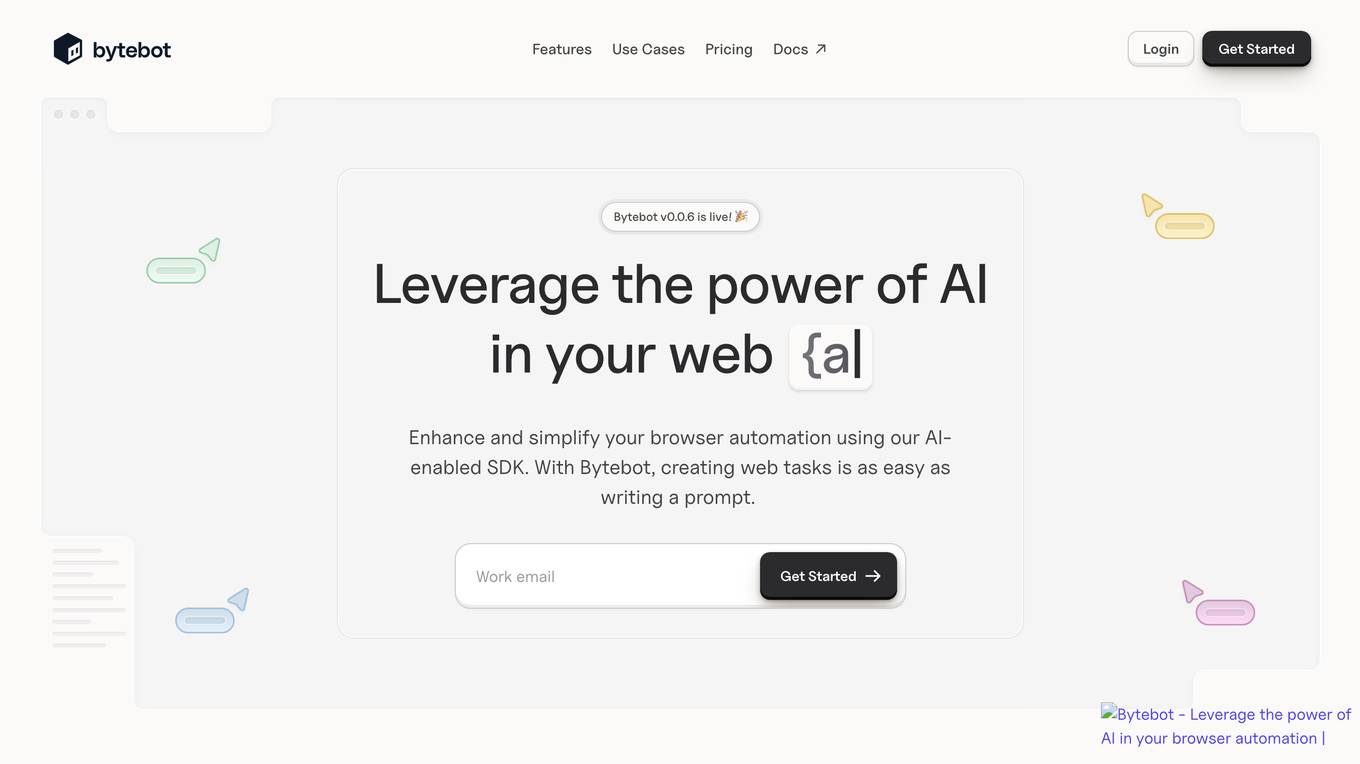
Bytebot
Bytebot is a web automation tool that uses AI to make it easy to create and manage web tasks. With Bytebot, you can create browser automations as intuitively as writing a simple prompt. Bytebot will take care of the code for you, so you can focus on the task at hand. Bytebot is perfect for a variety of tasks, including data extraction, form filling, and website monitoring.
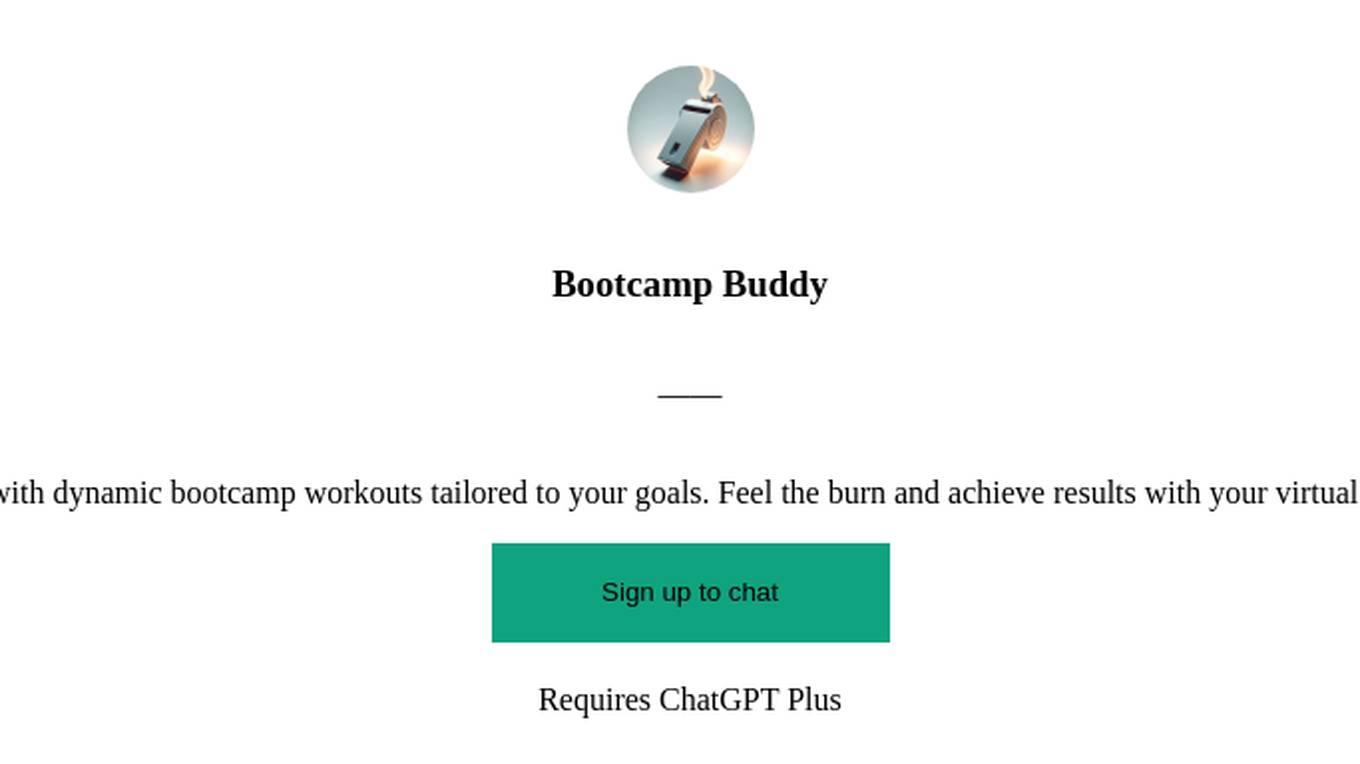
Bootcamp Buddy
Elevate your fitness with dynamic bootcamp workouts tailored to your goals. Feel the burn and achieve results with your virtual high-energy trainer! 💪🔥
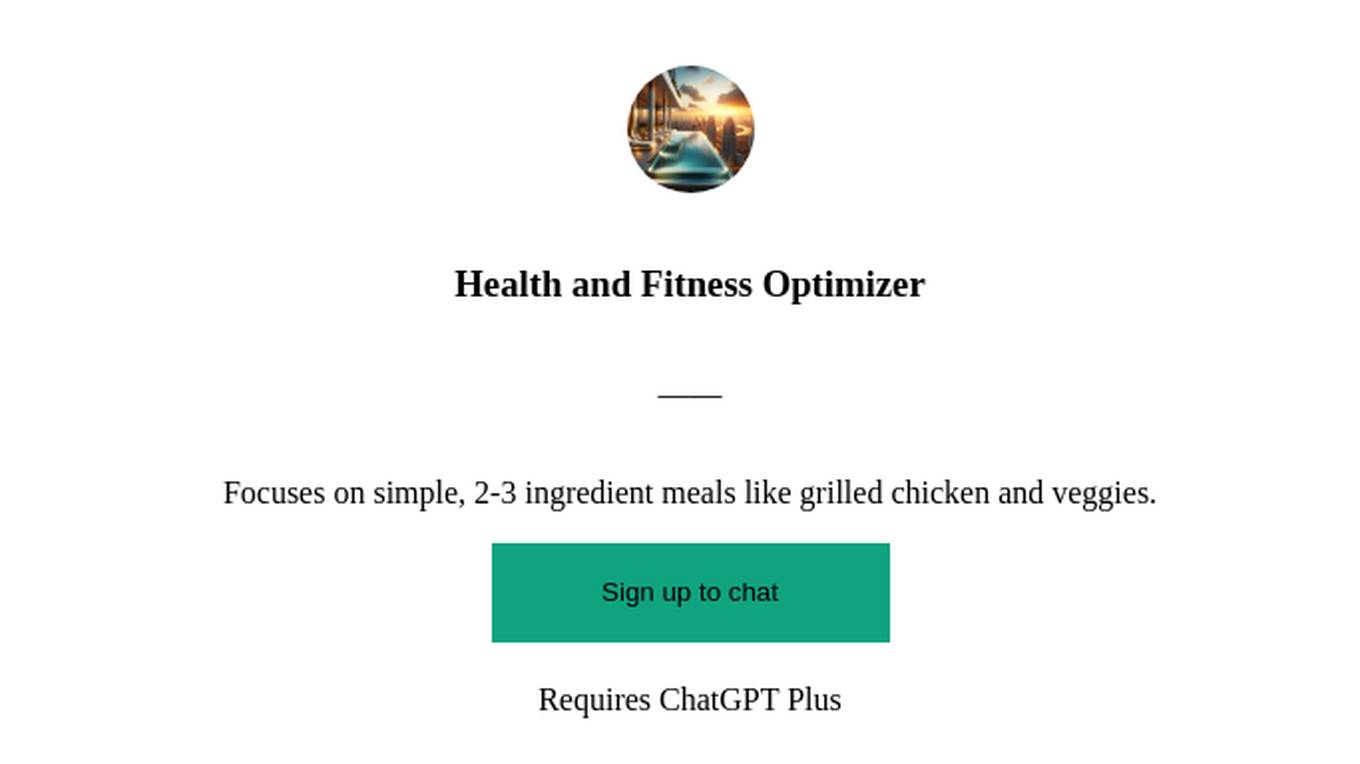
Health and Fitness Optimizer
Focuses on simple, 2-3 ingredient meals like grilled chicken and veggies.
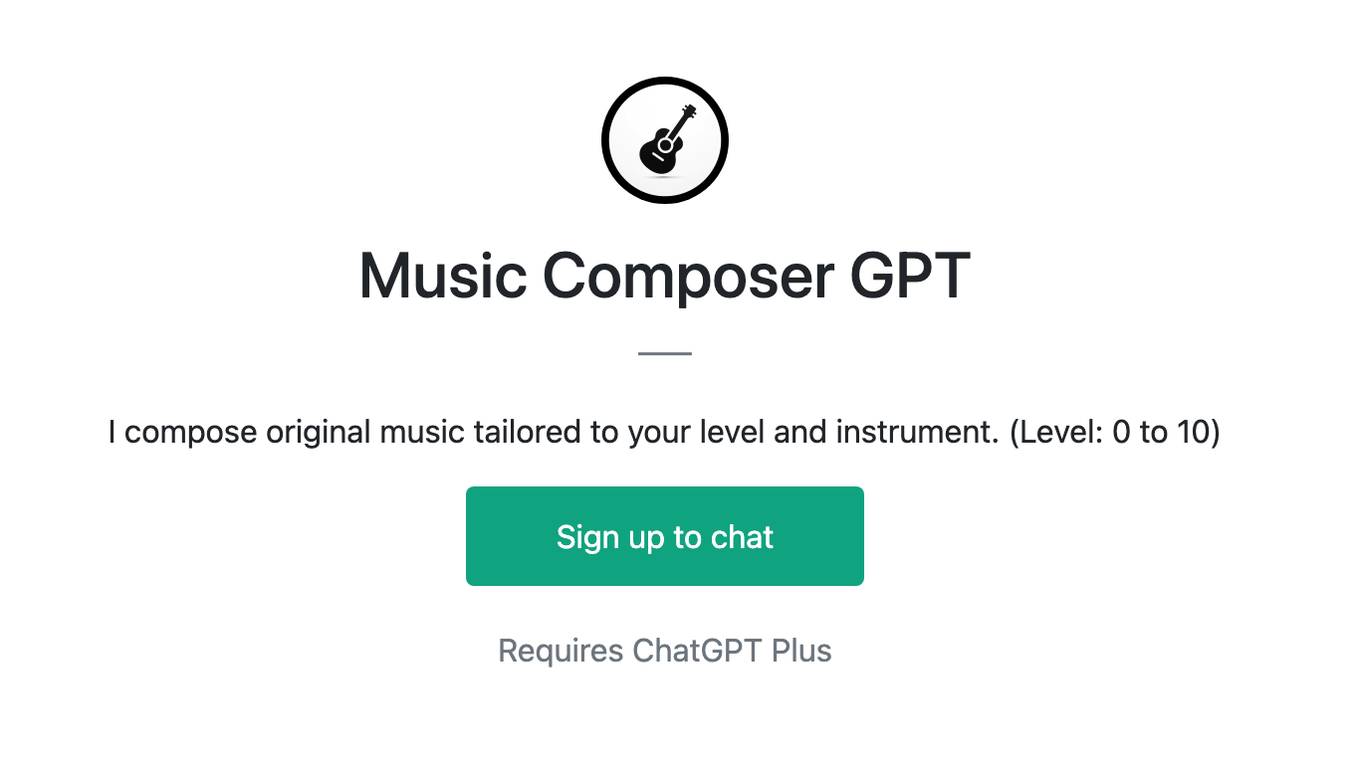
Music Composer GPT
I compose original music tailored to your level and instrument. (Level: 0 to 10)
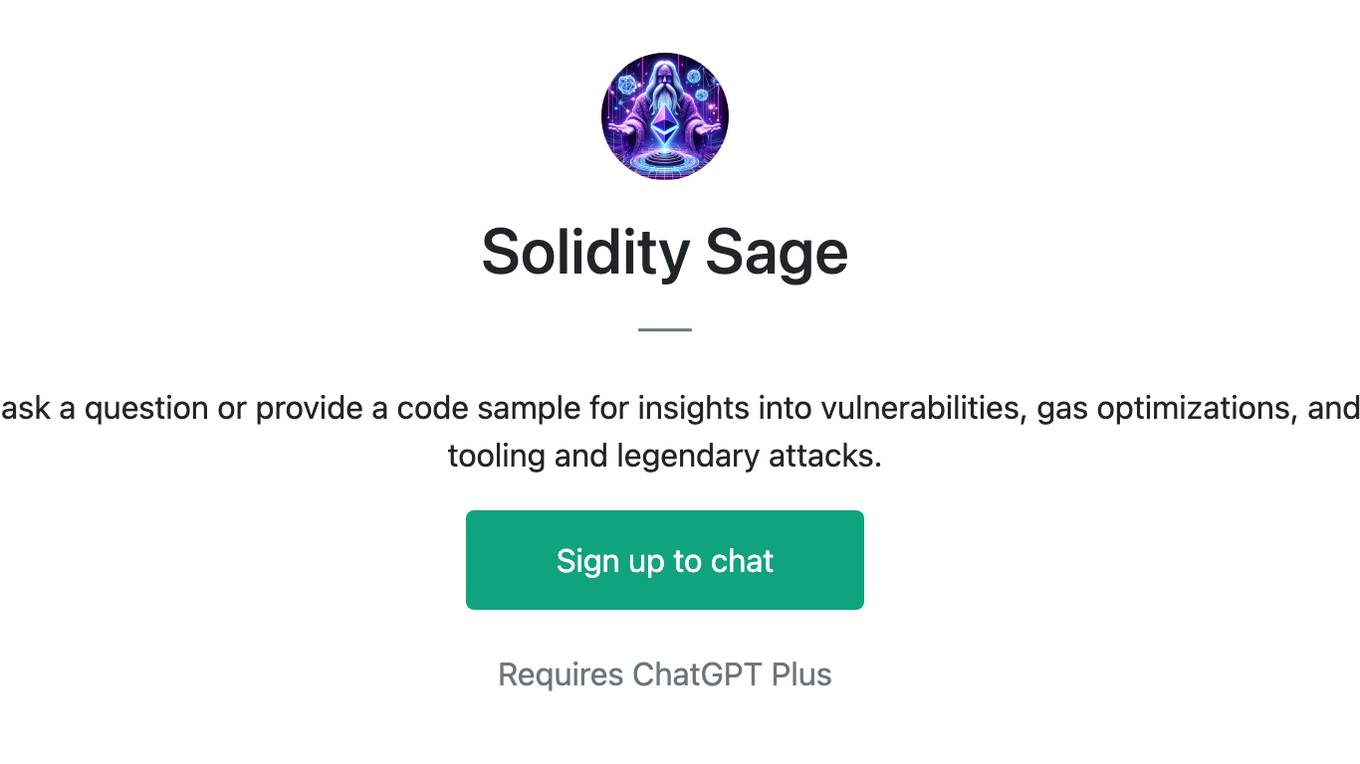
Solidity Sage
Your personal Ethereum magician — Simply ask a question or provide a code sample for insights into vulnerabilities, gas optimizations, and best practices. Don't be shy to ask about tooling and legendary attacks.
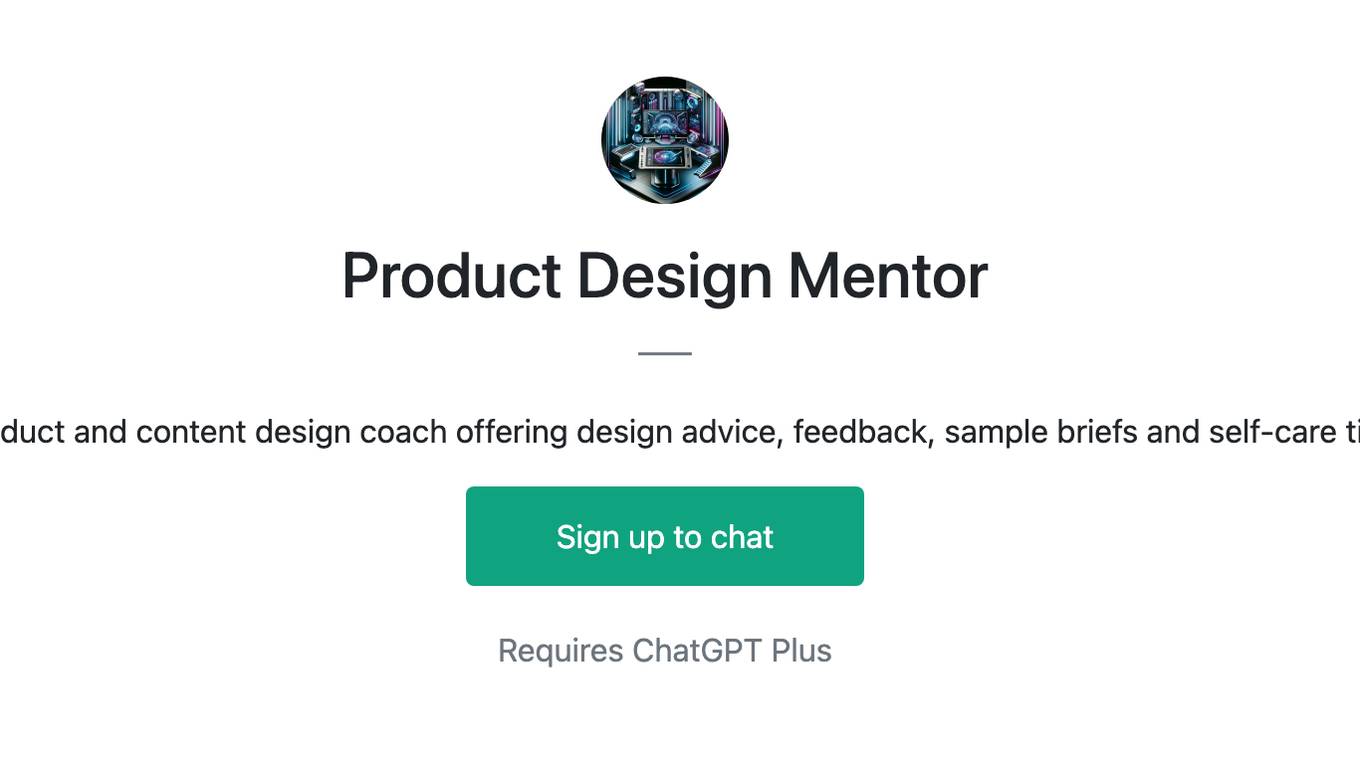
Product Design Mentor
A product and content design coach offering design advice, feedback, sample briefs and self-care tips.
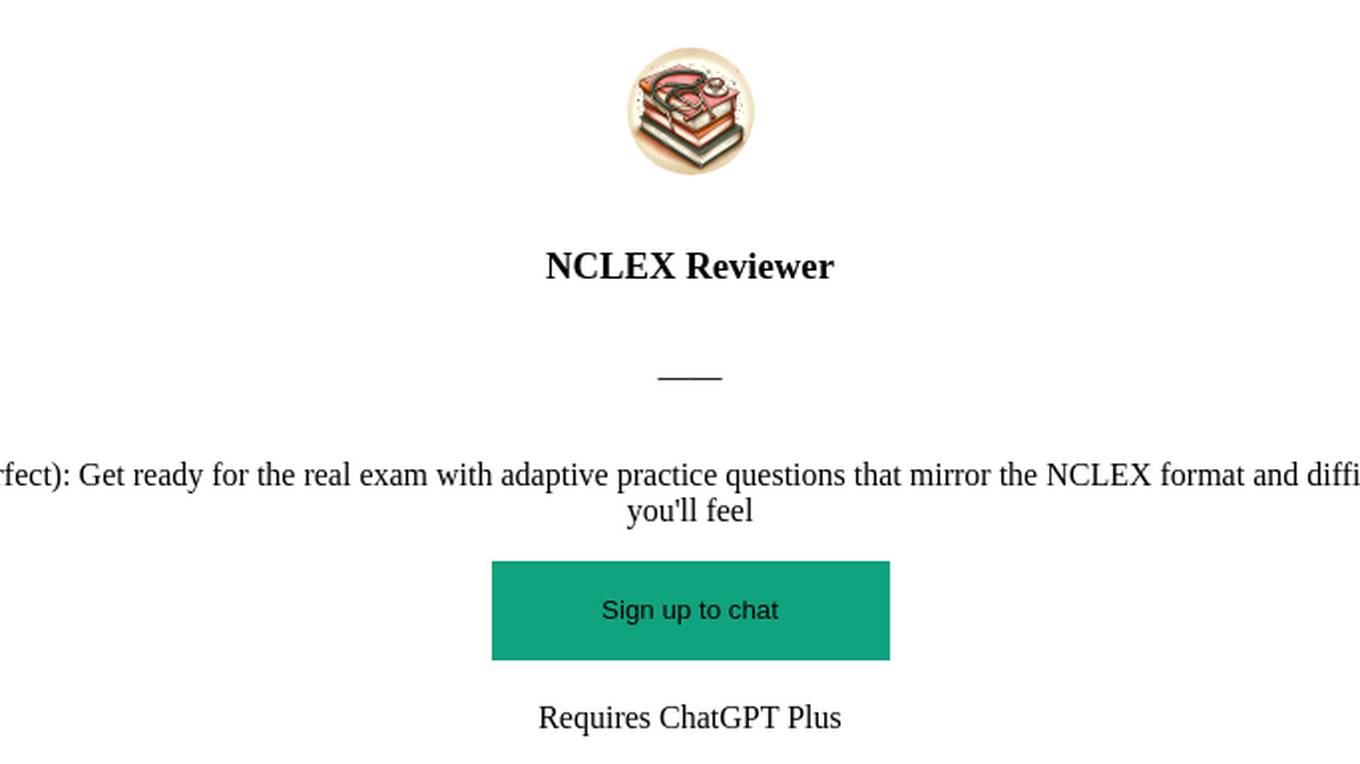
NCLEX Reviewer
Practice makes perfect (and I make practice perfect): Get ready for the real exam with adaptive practice questions that mirror the NCLEX format and difficulty. The more you practice, the more confident you'll feel
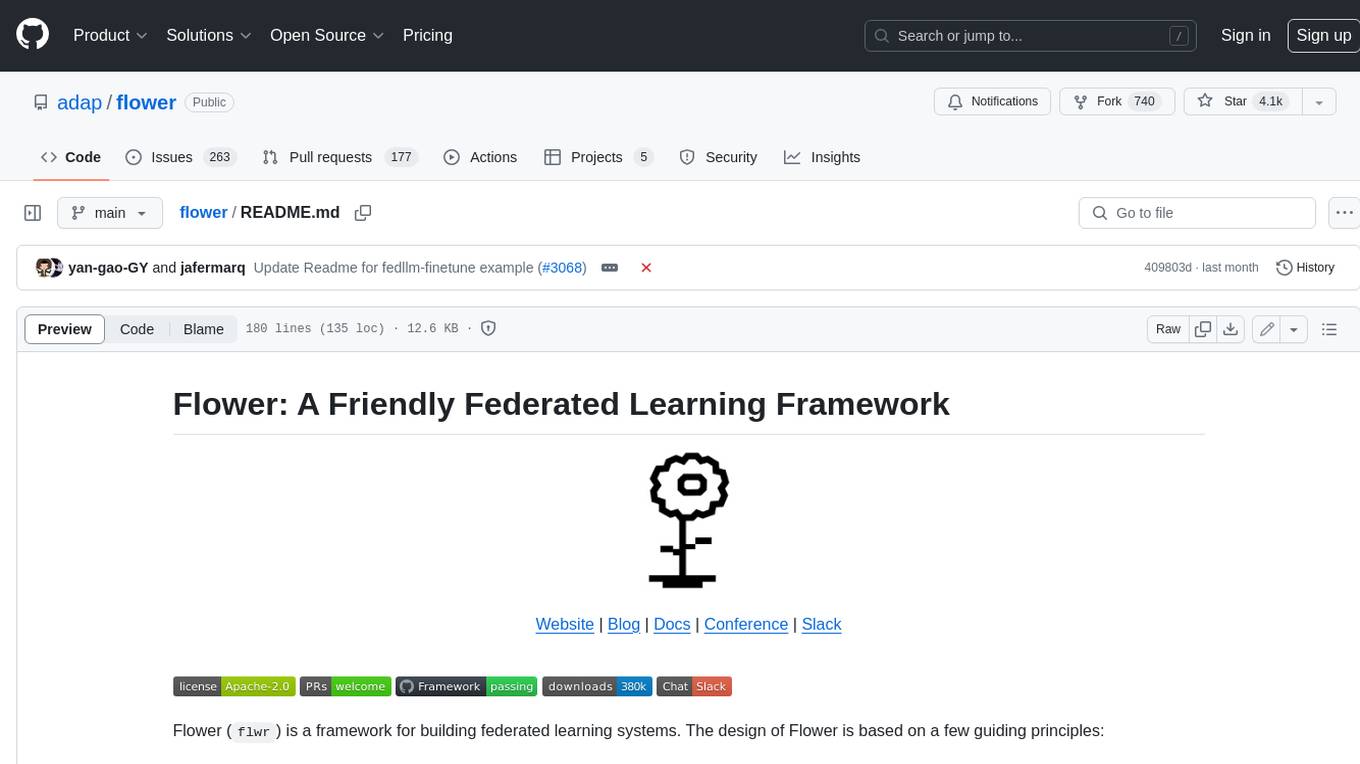
flower
Flower is a framework for building federated learning systems. It is designed to be customizable, extensible, framework-agnostic, and understandable. Flower can be used with any machine learning framework, for example, PyTorch, TensorFlow, Hugging Face Transformers, PyTorch Lightning, scikit-learn, JAX, TFLite, MONAI, fastai, MLX, XGBoost, Pandas for federated analytics, or even raw NumPy for users who enjoy computing gradients by hand.
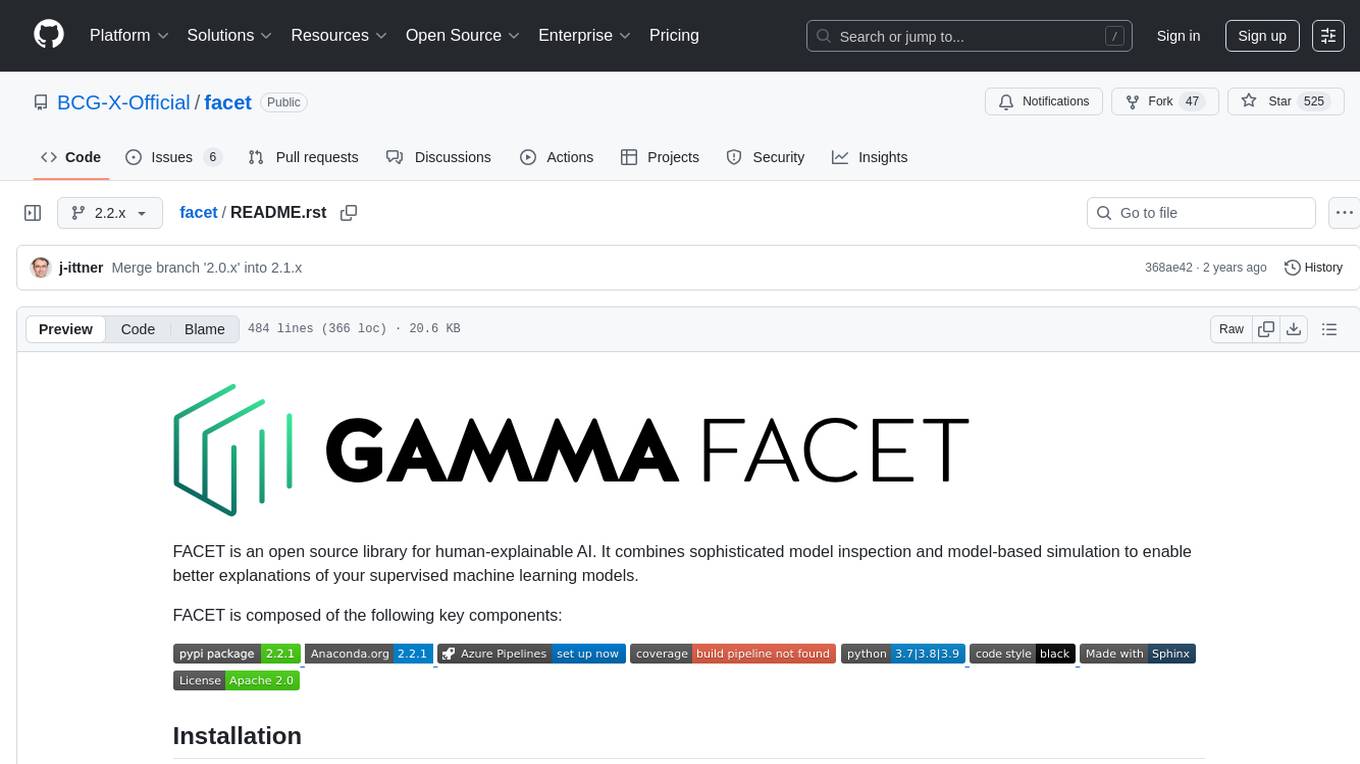
facet
FACET is an open source library for human-explainable AI that combines model inspection and model-based simulation to provide better explanations for supervised machine learning models. It offers an efficient and transparent machine learning workflow, enhancing scikit-learn's pipelining paradigm with new capabilities for model selection, inspection, and simulation. FACET introduces new algorithms for quantifying dependencies and interactions between features in ML models, as well as for conducting virtual experiments to optimize predicted outcomes. The tool ensures end-to-end traceability of features using an augmented version of scikit-learn with enhanced support for pandas data frames. FACET also provides model inspection methods for scikit-learn estimators, enhancing global metrics like synergy and redundancy to complement the local perspective of SHAP. Additionally, FACET offers model simulation capabilities for conducting univariate uplift simulations based on important features like BMI.
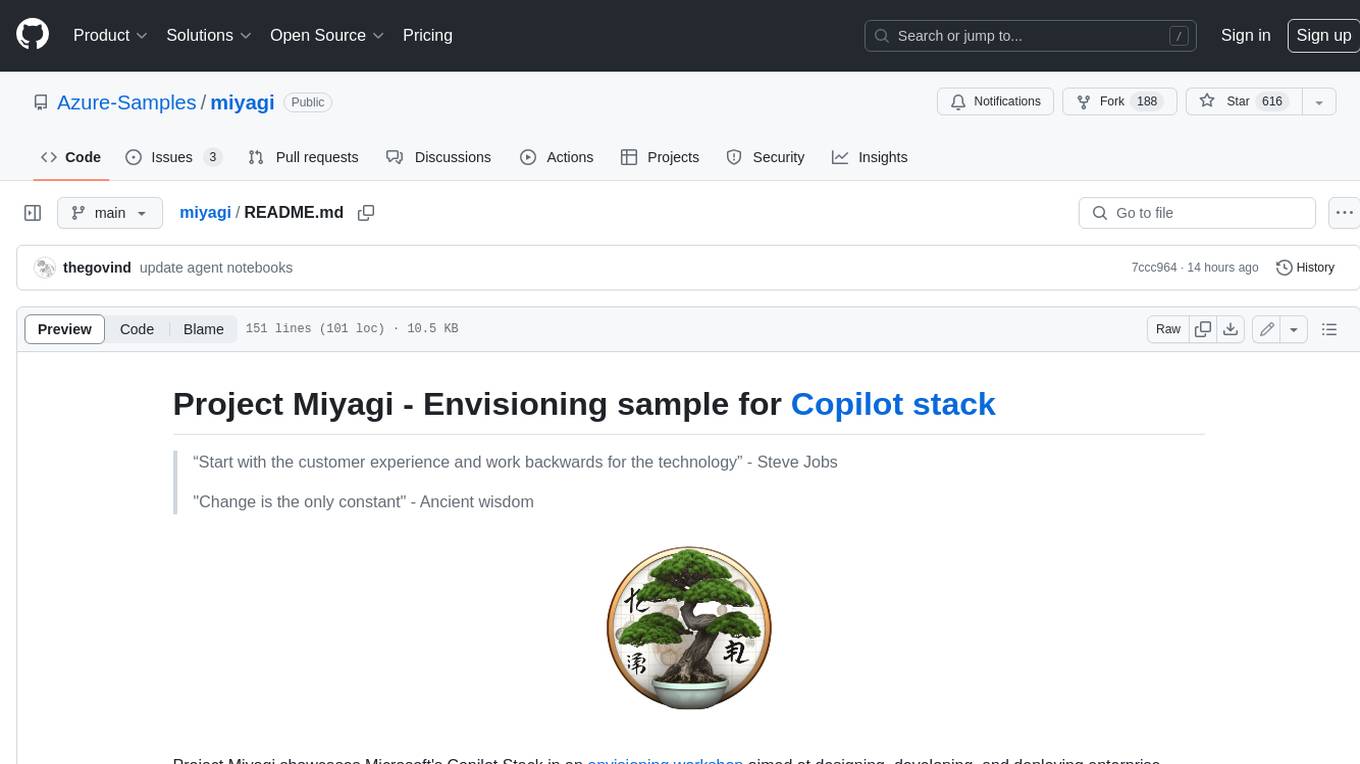
miyagi
Project Miyagi showcases Microsoft's Copilot Stack in an envisioning workshop aimed at designing, developing, and deploying enterprise-grade intelligent apps. By exploring both generative and traditional ML use cases, Miyagi offers an experiential approach to developing AI-infused product experiences that enhance productivity and enable hyper-personalization. Additionally, the workshop introduces traditional software engineers to emerging design patterns in prompt engineering, such as chain-of-thought and retrieval-augmentation, as well as to techniques like vectorization for long-term memory, fine-tuning of OSS models, agent-like orchestration, and plugins or tools for augmenting and grounding LLMs.
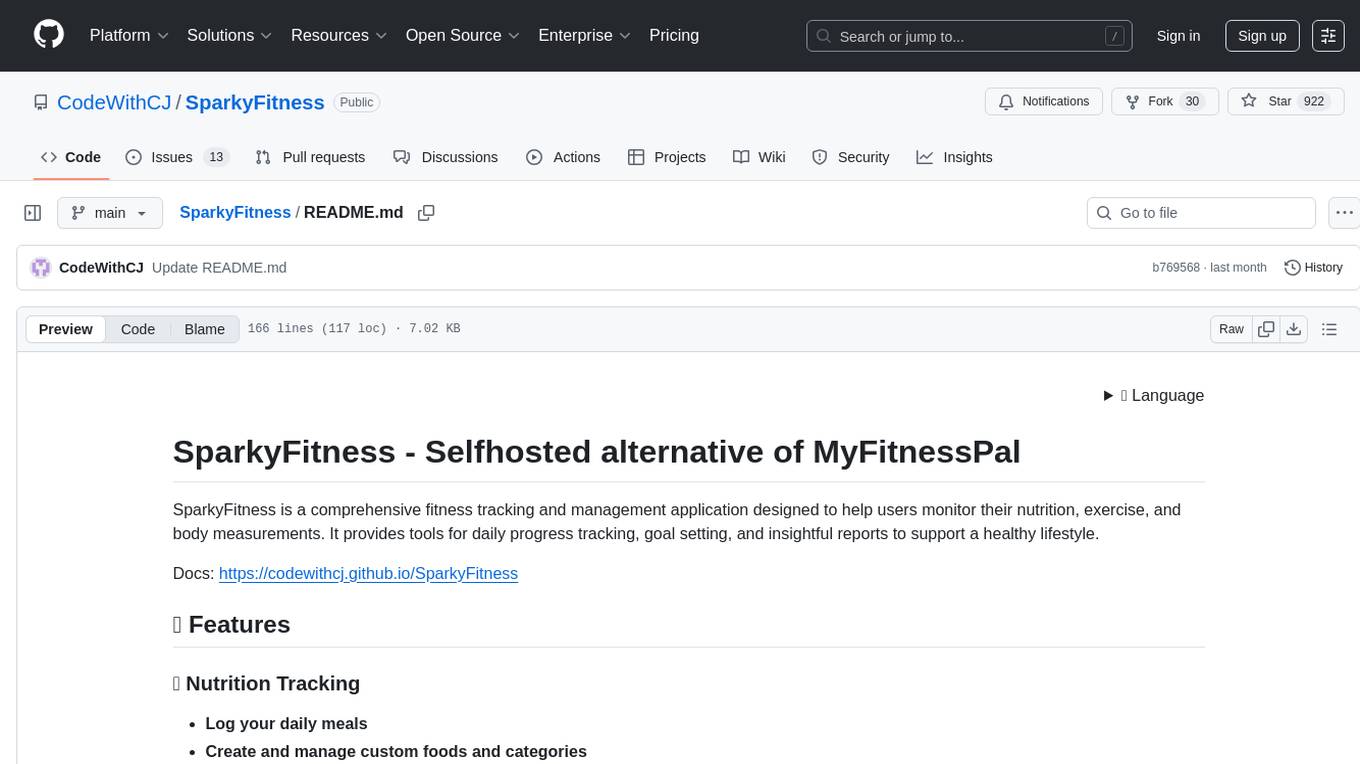
SparkyFitness
SparkyFitness is a self-hosted alternative to MyFitnessPal, offering comprehensive fitness tracking and management tools for monitoring nutrition, exercise, and body measurements. Users can track daily progress, set goals, and generate insightful reports to support a healthy lifestyle. The application includes features for nutrition tracking, exercise logging, water intake monitoring, body measurements recording, goal setting, daily check-ins, AI nutrition coaching, user authentication & profiles, comprehensive reports, and customizable themes. It also provides a secure login system, support for family access, and personalized guidance through a chat-based AI coach. SparkyFitness aims to help users achieve their fitness and nutrition goals with a minimal, distraction-free interface.
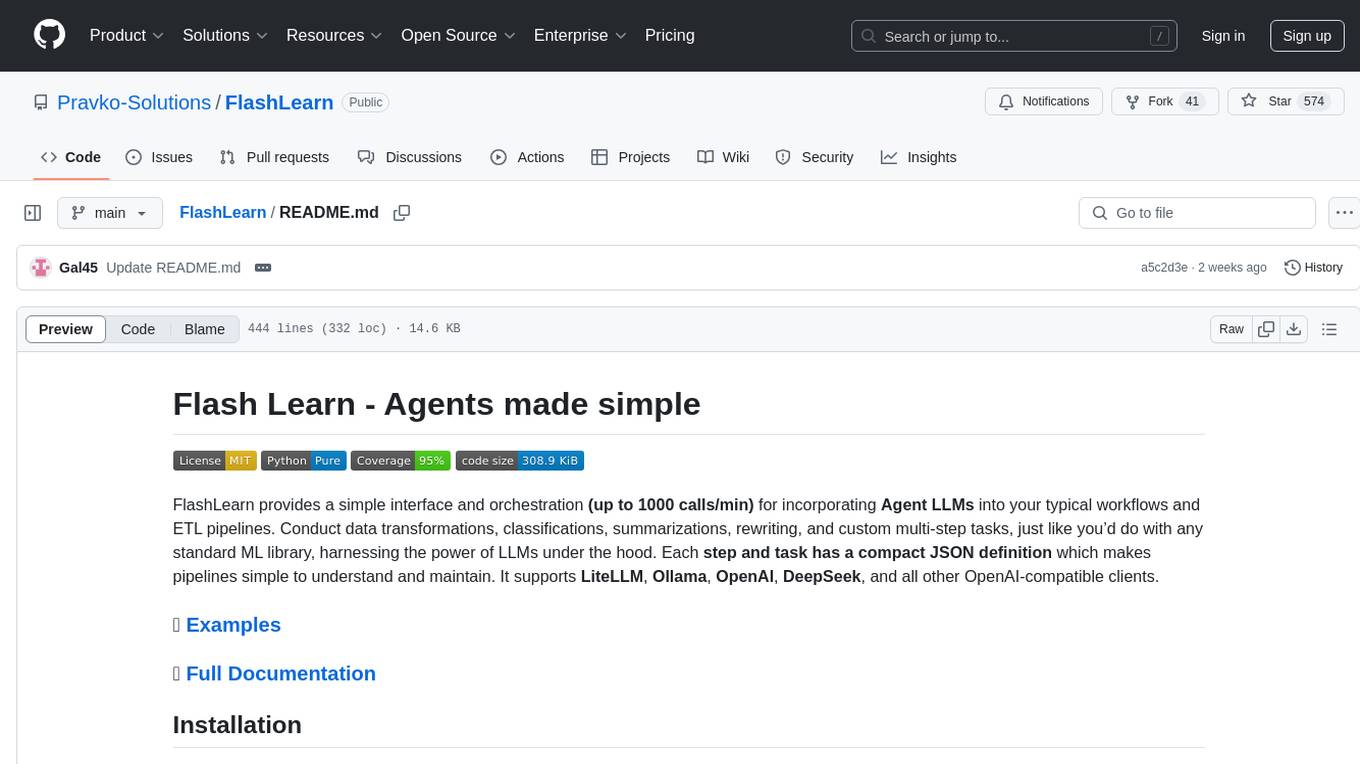
FlashLearn
FlashLearn is a tool that provides a simple interface and orchestration for incorporating Agent LLMs into workflows and ETL pipelines. It allows data transformations, classifications, summarizations, rewriting, and custom multi-step tasks using LLMs. Each step and task has a compact JSON definition, making pipelines easy to understand and maintain. FlashLearn supports LiteLLM, Ollama, OpenAI, DeepSeek, and other OpenAI-compatible clients.
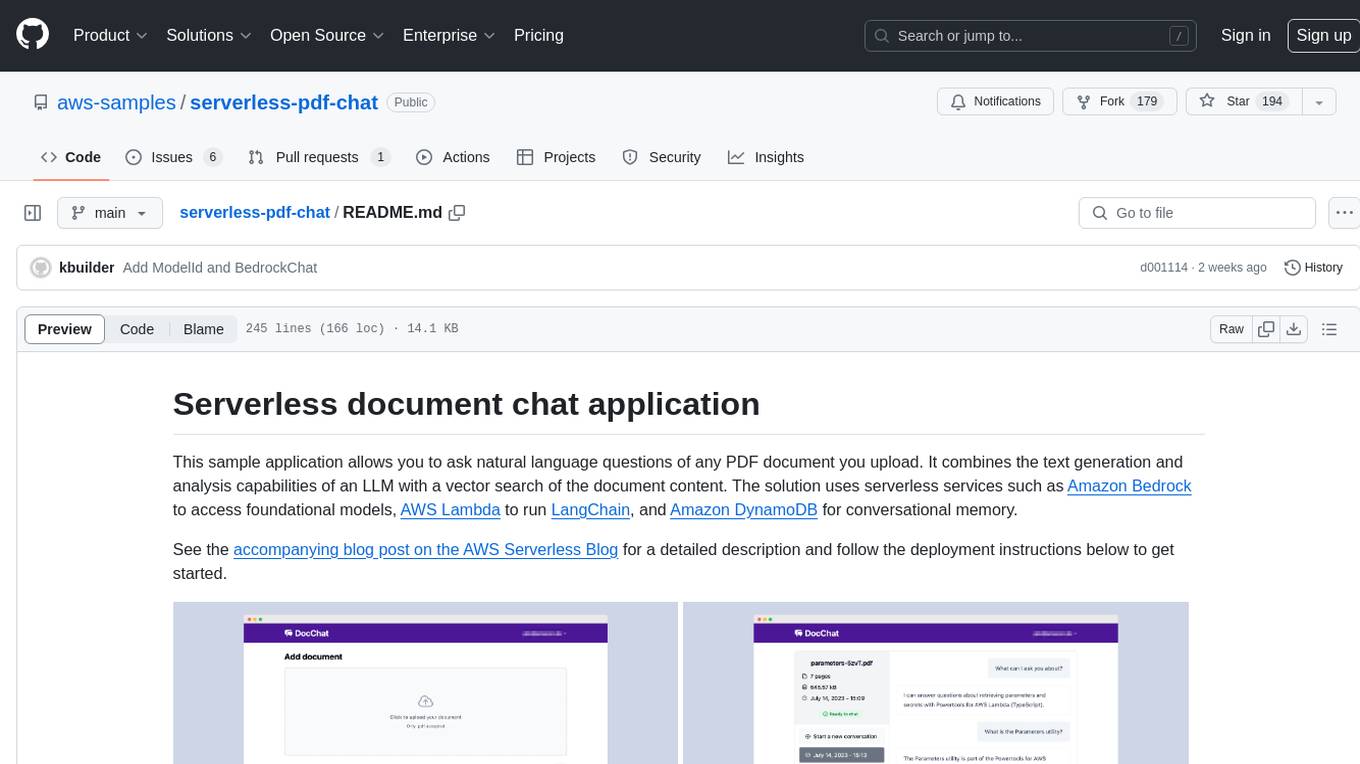
serverless-pdf-chat
The serverless-pdf-chat repository contains a sample application that allows users to ask natural language questions of any PDF document they upload. It leverages serverless services like Amazon Bedrock, AWS Lambda, and Amazon DynamoDB to provide text generation and analysis capabilities. The application architecture involves uploading a PDF document to an S3 bucket, extracting metadata, converting text to vectors, and using a LangChain to search for information related to user prompts. The application is not intended for production use and serves as a demonstration and educational tool.
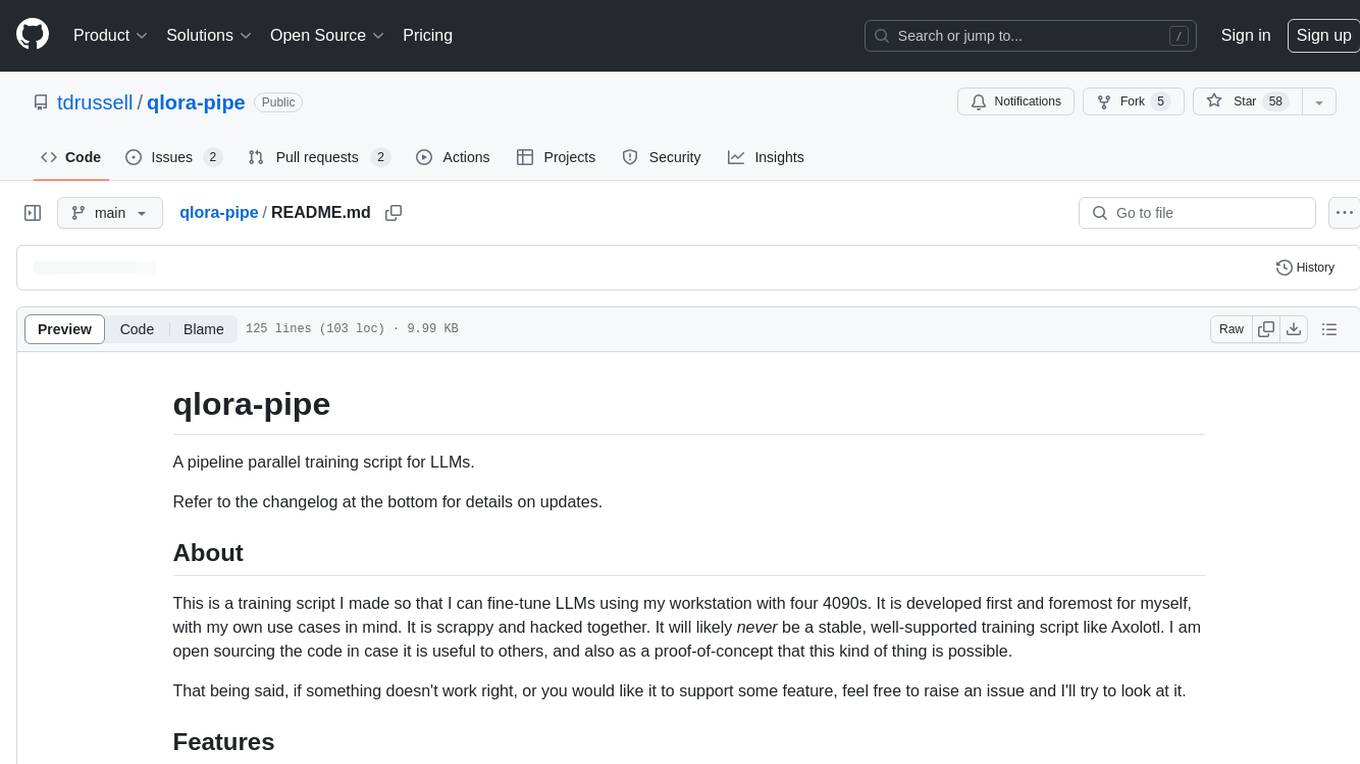
qlora-pipe
qlora-pipe is a pipeline parallel training script designed for efficiently training large language models that cannot fit on one GPU. It supports QLoRA, LoRA, and full fine-tuning, with efficient model loading and the ability to load any dataset that Axolotl can handle. The script allows for raw text training, resuming training from a checkpoint, logging metrics to Tensorboard, specifying a separate evaluation dataset, training on multiple datasets simultaneously, and supports various models like Llama, Mistral, Mixtral, Qwen-1.5, and Cohere (Command R). It handles pipeline- and data-parallelism using Deepspeed, enabling users to set the number of GPUs, pipeline stages, and gradient accumulation steps for optimal utilization.

fastfit
FastFit is a Python package designed for fast and accurate few-shot classification, especially for scenarios with many semantically similar classes. It utilizes a novel approach integrating batch contrastive learning and token-level similarity score, significantly improving multi-class classification performance in speed and accuracy across various datasets. FastFit provides a convenient command-line tool for training text classification models with customizable parameters. It offers a 3-20x improvement in training speed, completing training in just a few seconds. Users can also train models with Python scripts and perform inference using pretrained models for text classification tasks.
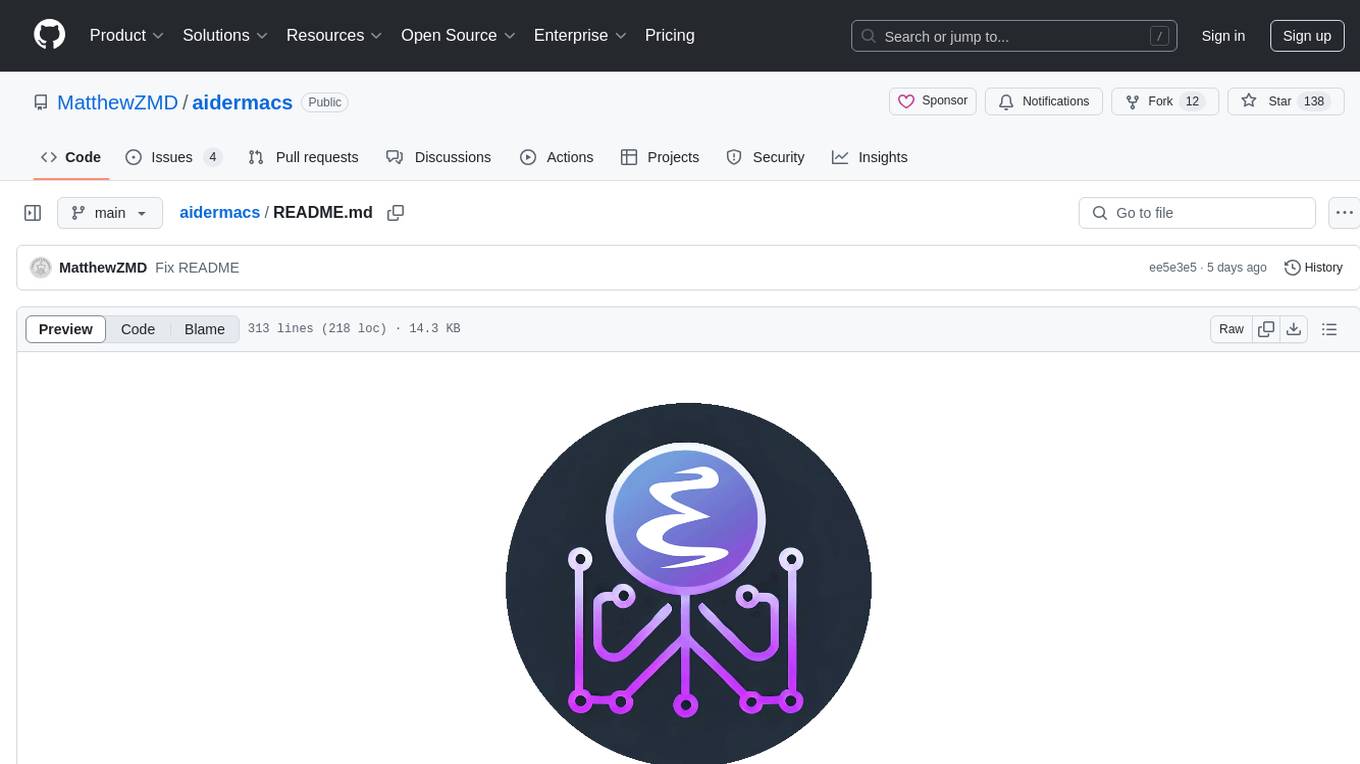
aidermacs
Aidermacs is an AI pair programming tool for Emacs that integrates Aider, a powerful open-source AI pair programming tool. It provides top performance on the SWE Bench, support for multi-file edits, real-time file synchronization, and broad language support. Aidermacs delivers an Emacs-centric experience with features like intelligent model selection, flexible terminal backend support, smarter syntax highlighting, enhanced file management, and streamlined transient menus. It thrives on community involvement, encouraging contributions, issue reporting, idea sharing, and documentation improvement.
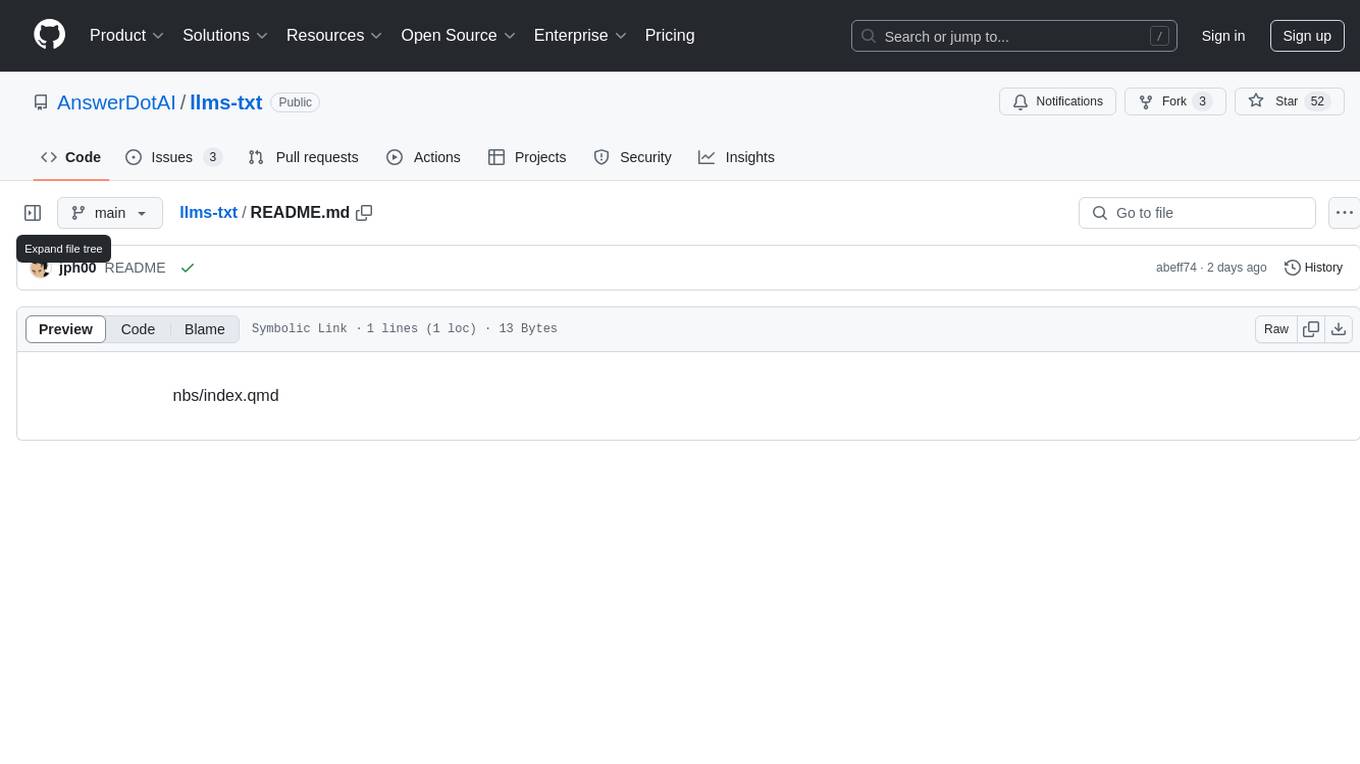
llms-txt
The llms-txt repository proposes a standardization on using an `/llms.txt` file to provide information to help large language models (LLMs) use a website at inference time. The `llms.txt` file is a markdown file that offers brief background information, guidance, and links to more detailed information in markdown files. It aims to provide concise and structured information for LLMs to access easily, helping users interact with websites via AI helpers. The repository also includes tools like a CLI and Python module for parsing `llms.txt` files and generating LLM context from them, along with a sample JavaScript implementation. The proposal suggests adding clean markdown versions of web pages alongside the original HTML pages to facilitate LLM readability and access to essential information.
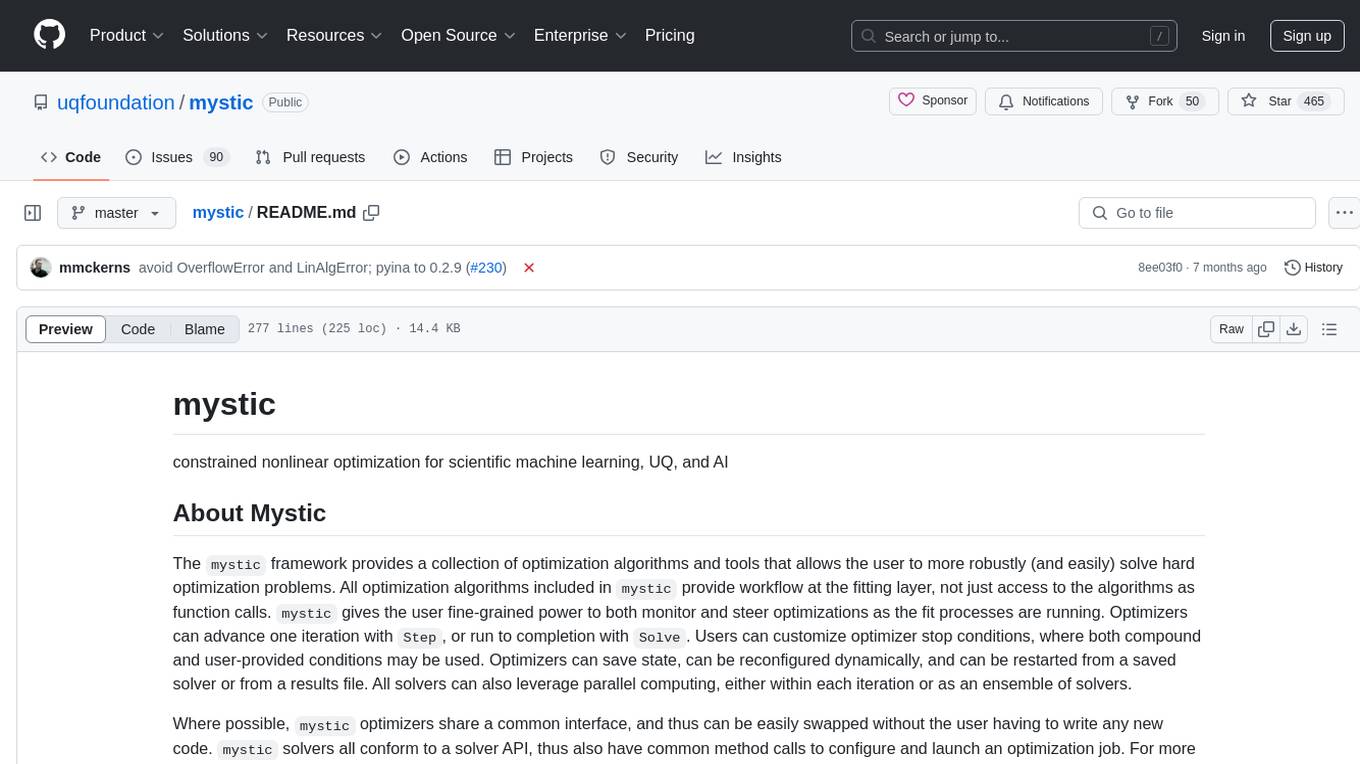
mystic
The `mystic` framework provides a collection of optimization algorithms and tools that allow the user to robustly solve hard optimization problems. It offers fine-grained power to monitor and steer optimizations during the fit processes. Optimizers can advance one iteration or run to completion, with customizable stop conditions. `mystic` optimizers share a common interface for easy swapping without writing new code. The framework supports parameter constraints, including soft and hard constraints, and provides tools for scientific machine learning, uncertainty quantification, adaptive sampling, nonlinear interpolation, and artificial intelligence. `mystic` is actively developed and welcomes user feedback and contributions.
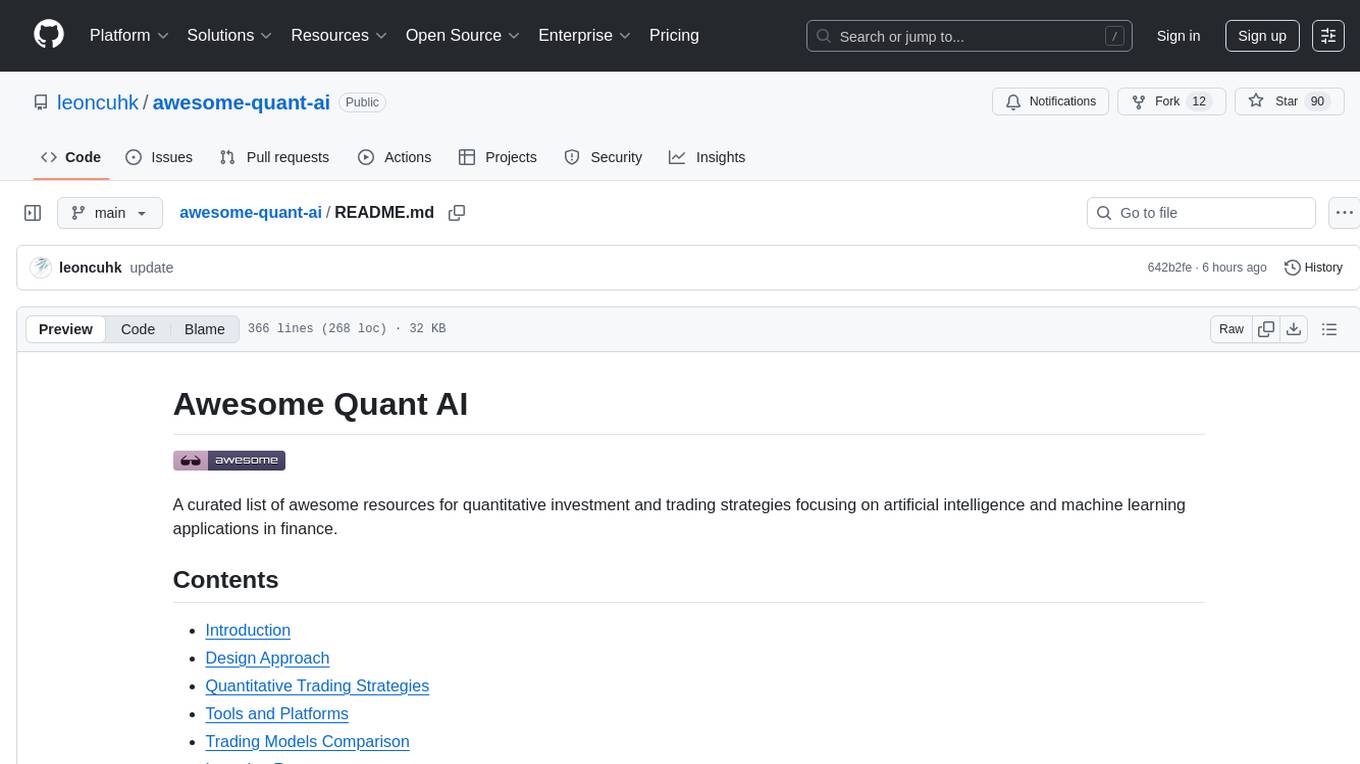
awesome-quant-ai
Awesome Quant AI is a curated list of resources focusing on quantitative investment and trading strategies using artificial intelligence and machine learning in finance. It covers key challenges in quantitative finance, AI/ML technical fit, predictive modeling, sequential decision-making, synthetic data generation, contextual reasoning, mathematical foundations, design approach, quantitative trading strategies, tools and platforms, learning resources, books, research papers, community, and conferences. The repository aims to provide a comprehensive resource for those interested in the intersection of AI, machine learning, and quantitative finance, with a focus on extracting alpha while managing risk in financial systems.
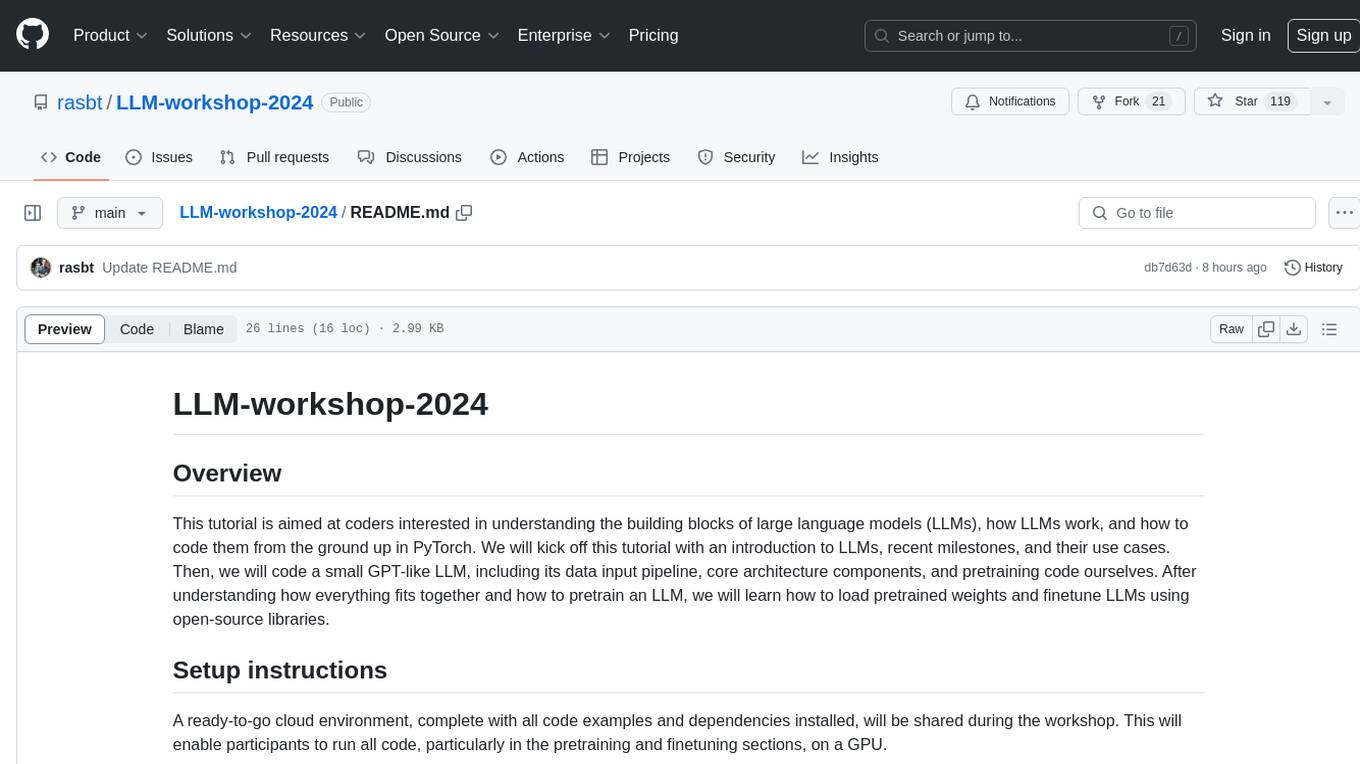
LLM-workshop-2024
LLM-workshop-2024 is a tutorial designed for coders interested in understanding the building blocks of large language models (LLMs), how LLMs work, and how to code them from scratch in PyTorch. The tutorial covers topics such as introduction to LLMs, understanding LLM input data, coding LLM architecture, pretraining LLMs, loading pretrained weights, and finetuning LLMs using open-source libraries. Participants will learn to implement a small GPT-like LLM, including data input pipeline, core architecture components, and pretraining code.
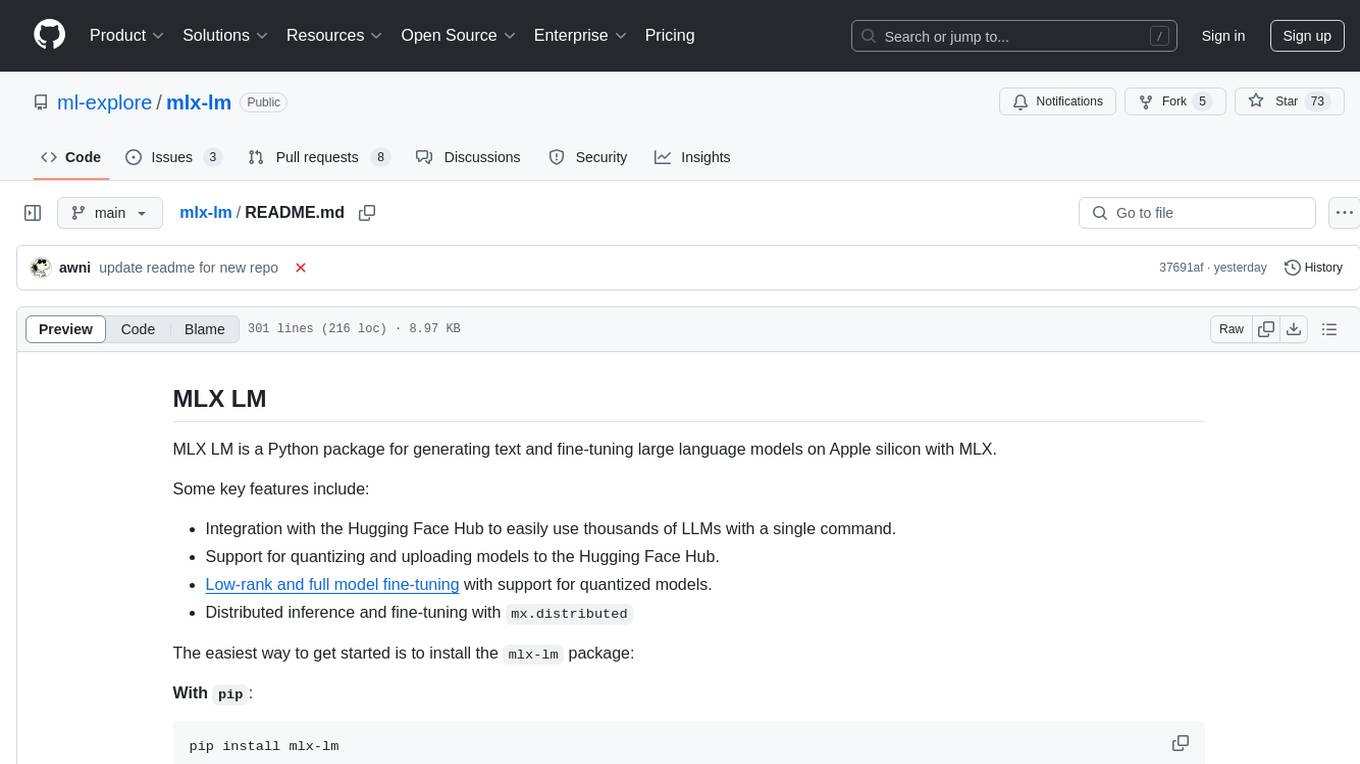
mlx-lm
MLX LM is a Python package designed for generating text and fine-tuning large language models on Apple silicon using MLX. It offers integration with the Hugging Face Hub for easy access to thousands of LLMs, support for quantizing and uploading models to the Hub, low-rank and full model fine-tuning capabilities, and distributed inference and fine-tuning with `mx.distributed`. Users can interact with the package through command line options or the Python API, enabling tasks such as text generation, chatting with language models, model conversion, streaming generation, and sampling. MLX LM supports various Hugging Face models and provides tools for efficient scaling to long prompts and generations, including a rotating key-value cache and prompt caching. It requires macOS 15.0 or higher for optimal performance.
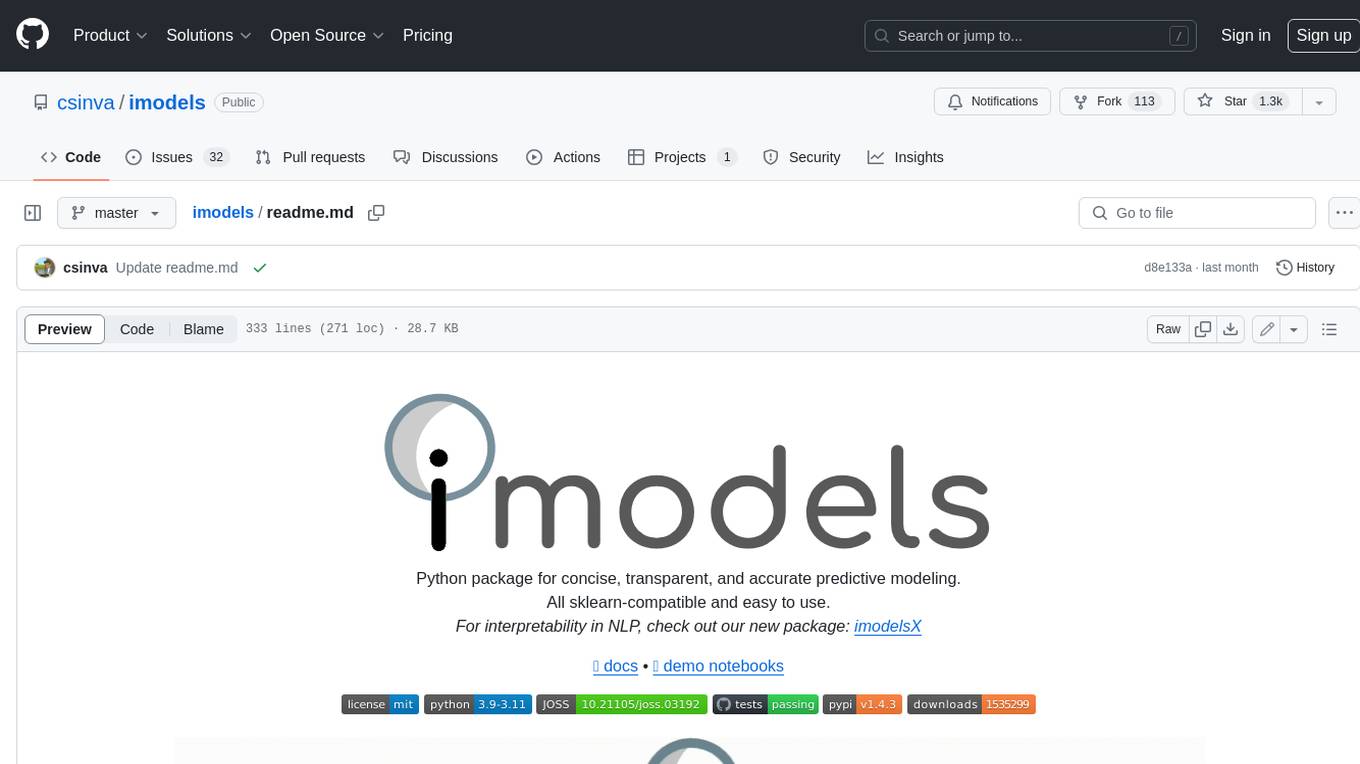
imodels
Python package for concise, transparent, and accurate predictive modeling. All sklearn-compatible and easy to use. _For interpretability in NLP, check out our new package:imodelsX _

PIXIU
PIXIU is a project designed to support the development, fine-tuning, and evaluation of Large Language Models (LLMs) in the financial domain. It includes components like FinBen, a Financial Language Understanding and Prediction Evaluation Benchmark, FIT, a Financial Instruction Dataset, and FinMA, a Financial Large Language Model. The project provides open resources, multi-task and multi-modal financial data, and diverse financial tasks for training and evaluation. It aims to encourage open research and transparency in the financial NLP field.
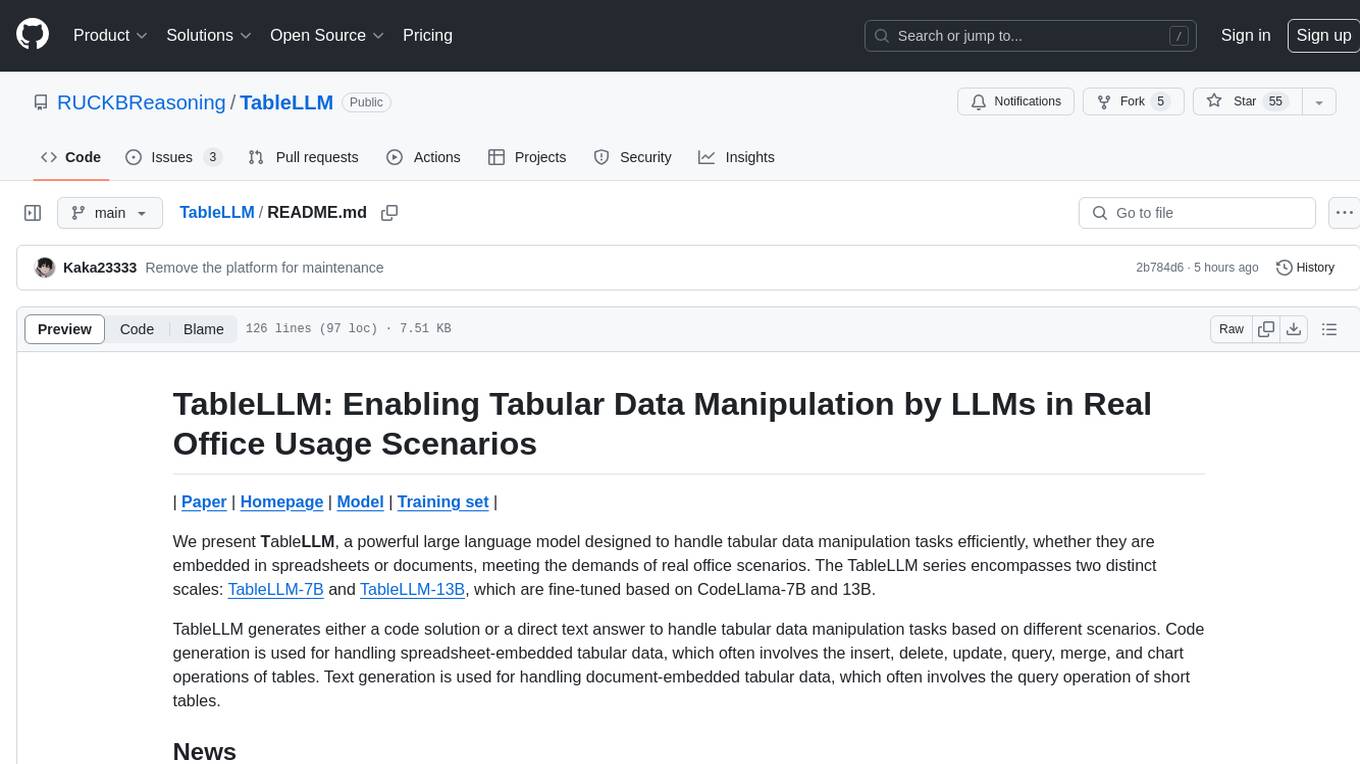
TableLLM
TableLLM is a large language model designed for efficient tabular data manipulation tasks in real office scenarios. It can generate code solutions or direct text answers for tasks like insert, delete, update, query, merge, and chart operations on tables embedded in spreadsheets or documents. The model has been fine-tuned based on CodeLlama-7B and 13B, offering two scales: TableLLM-7B and TableLLM-13B. Evaluation results show its performance on benchmarks like WikiSQL, Spider, and self-created table operation benchmark. Users can use TableLLM for code and text generation tasks on tabular data.
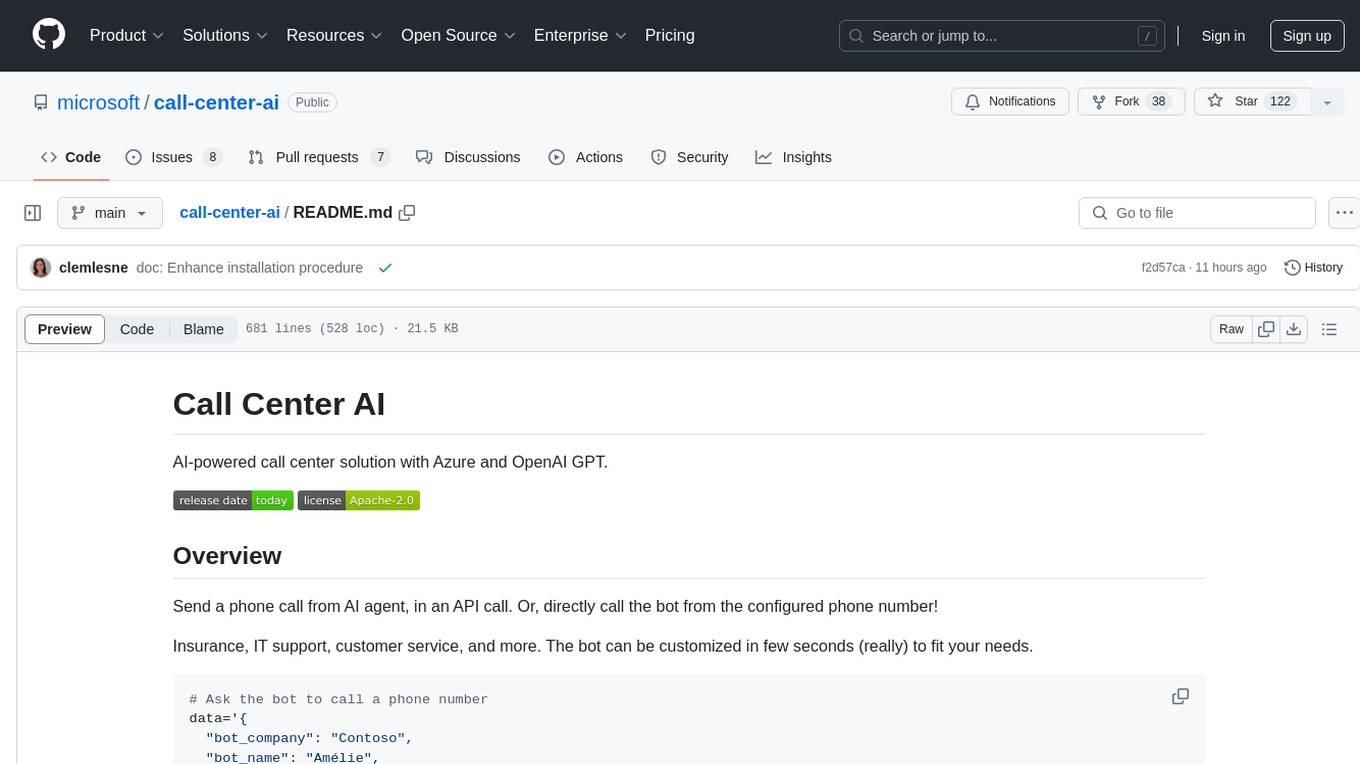
call-center-ai
Call Center AI is an AI-powered call center solution leveraging Azure and OpenAI GPT. It allows for AI agent-initiated phone calls or direct calls to the bot from a configured phone number. The bot is customizable for various industries like insurance, IT support, and customer service, with features such as accessing claim information, conversation history, language change, SMS sending, and more. The project is a proof of concept showcasing the integration of Azure Communication Services, Azure Cognitive Services, and Azure OpenAI for an automated call center solution.


